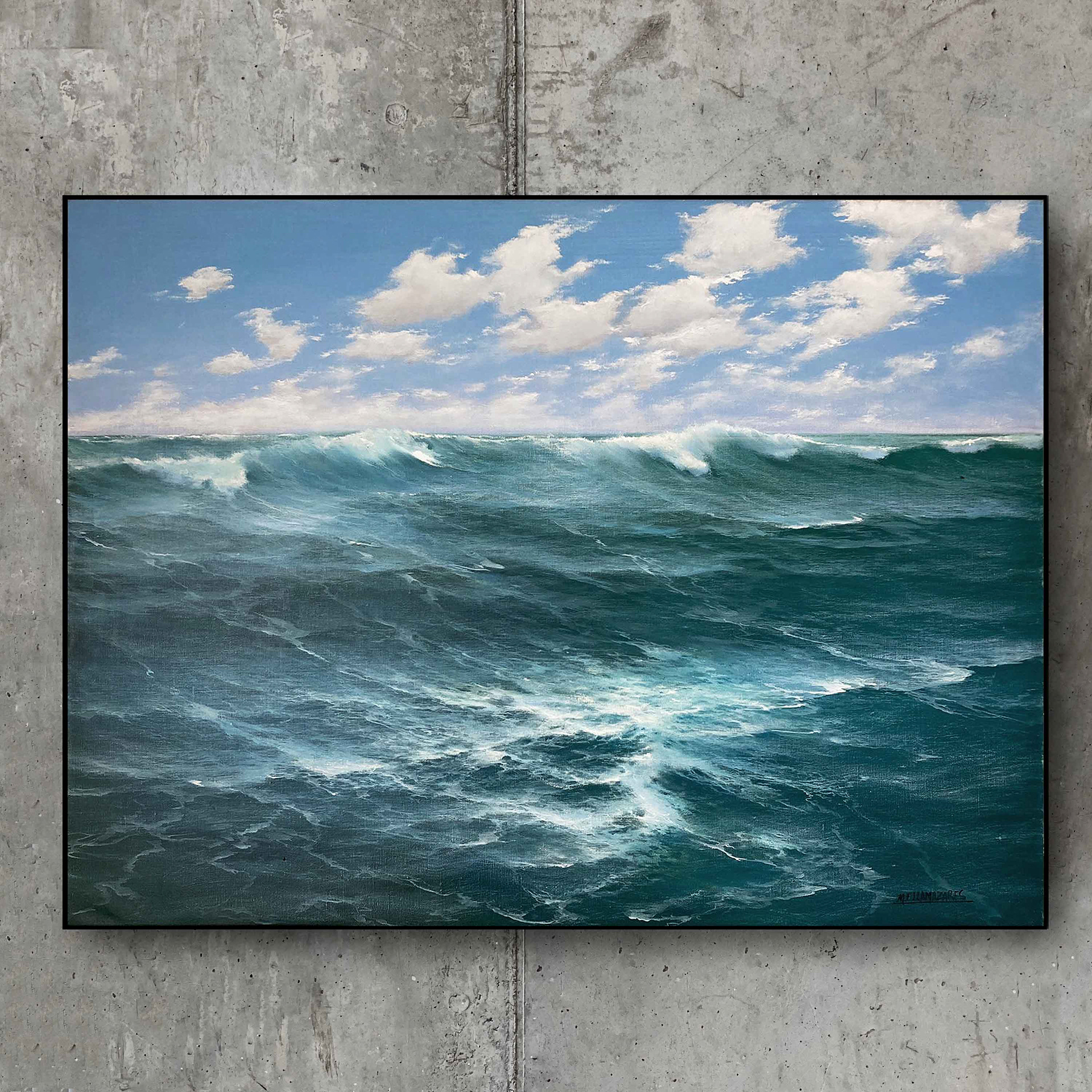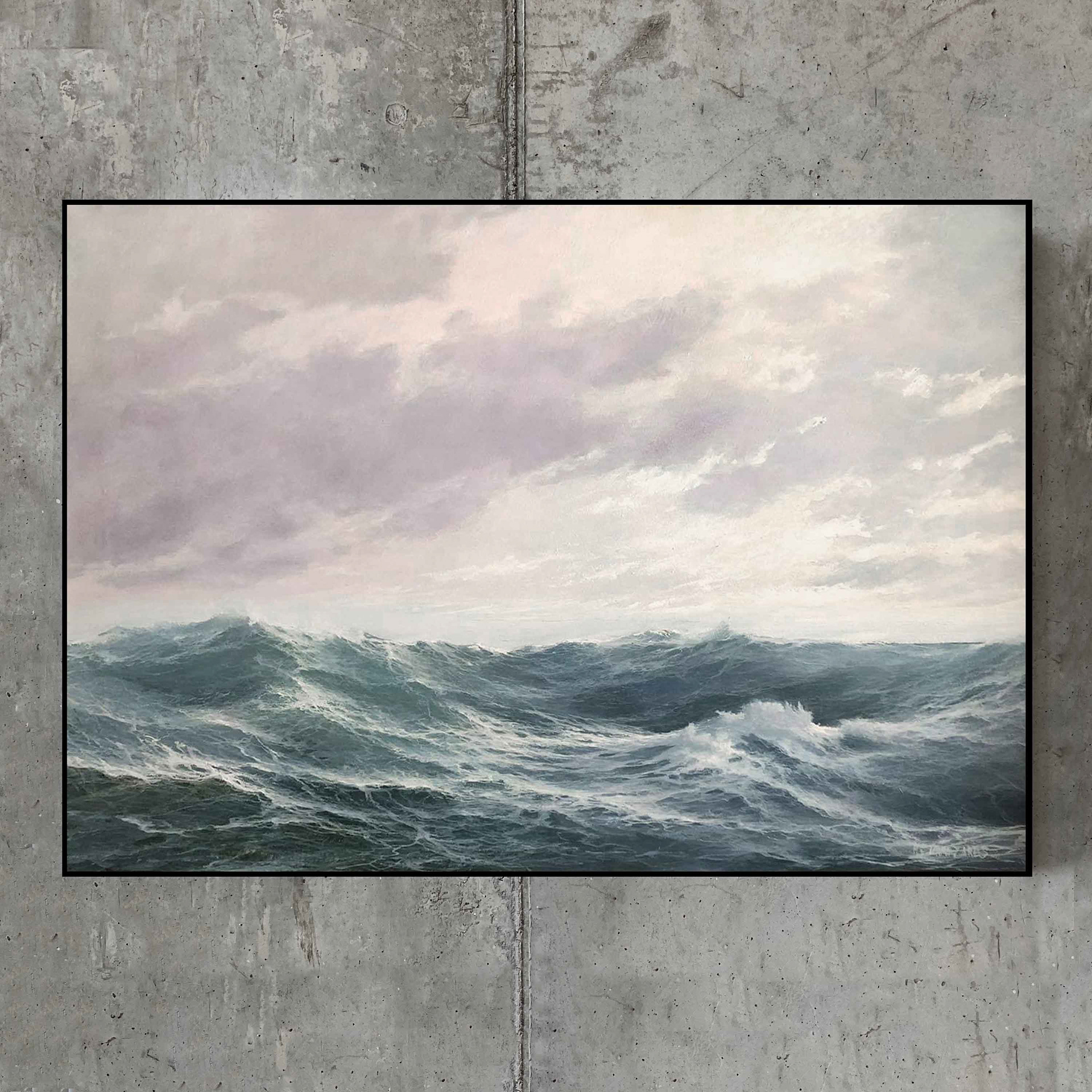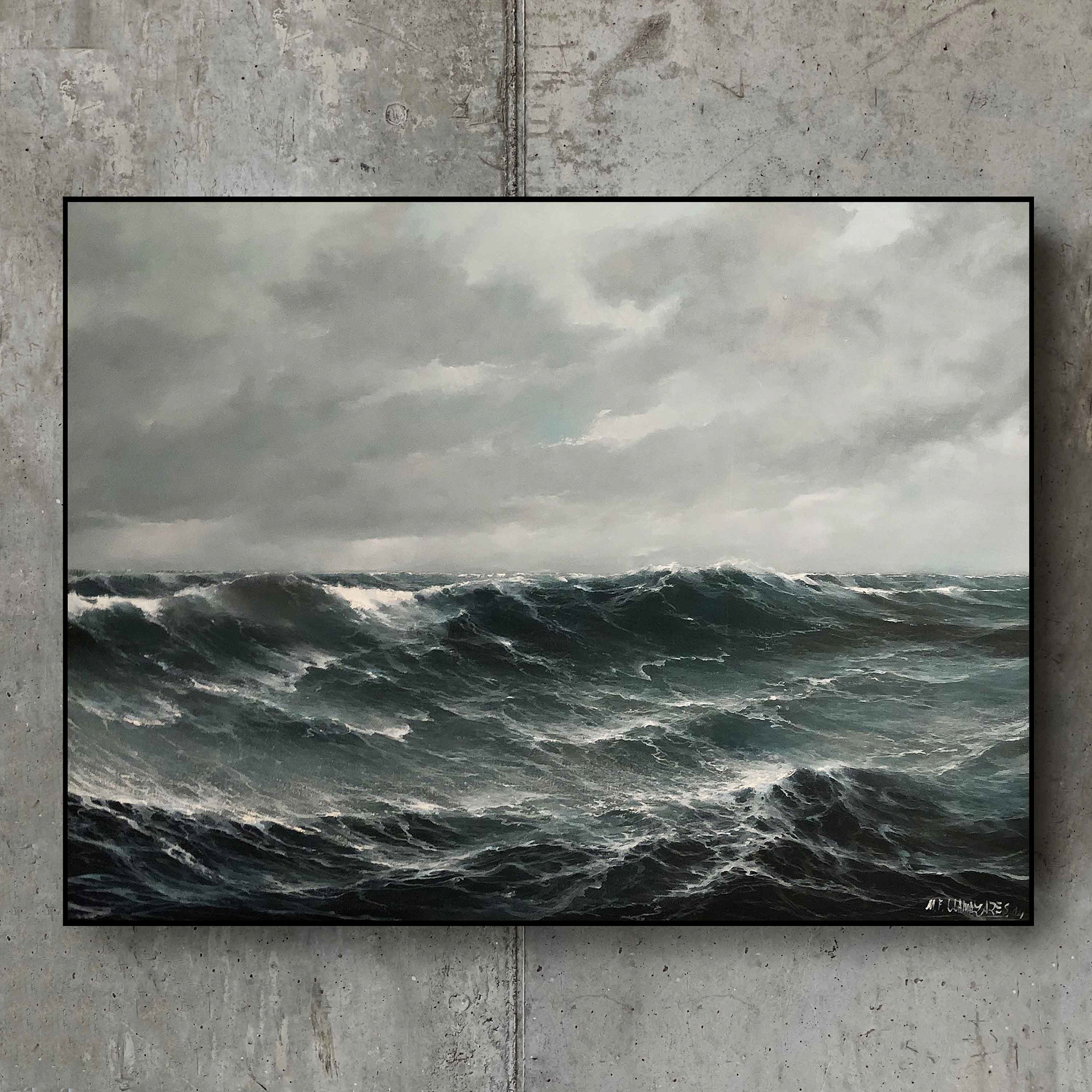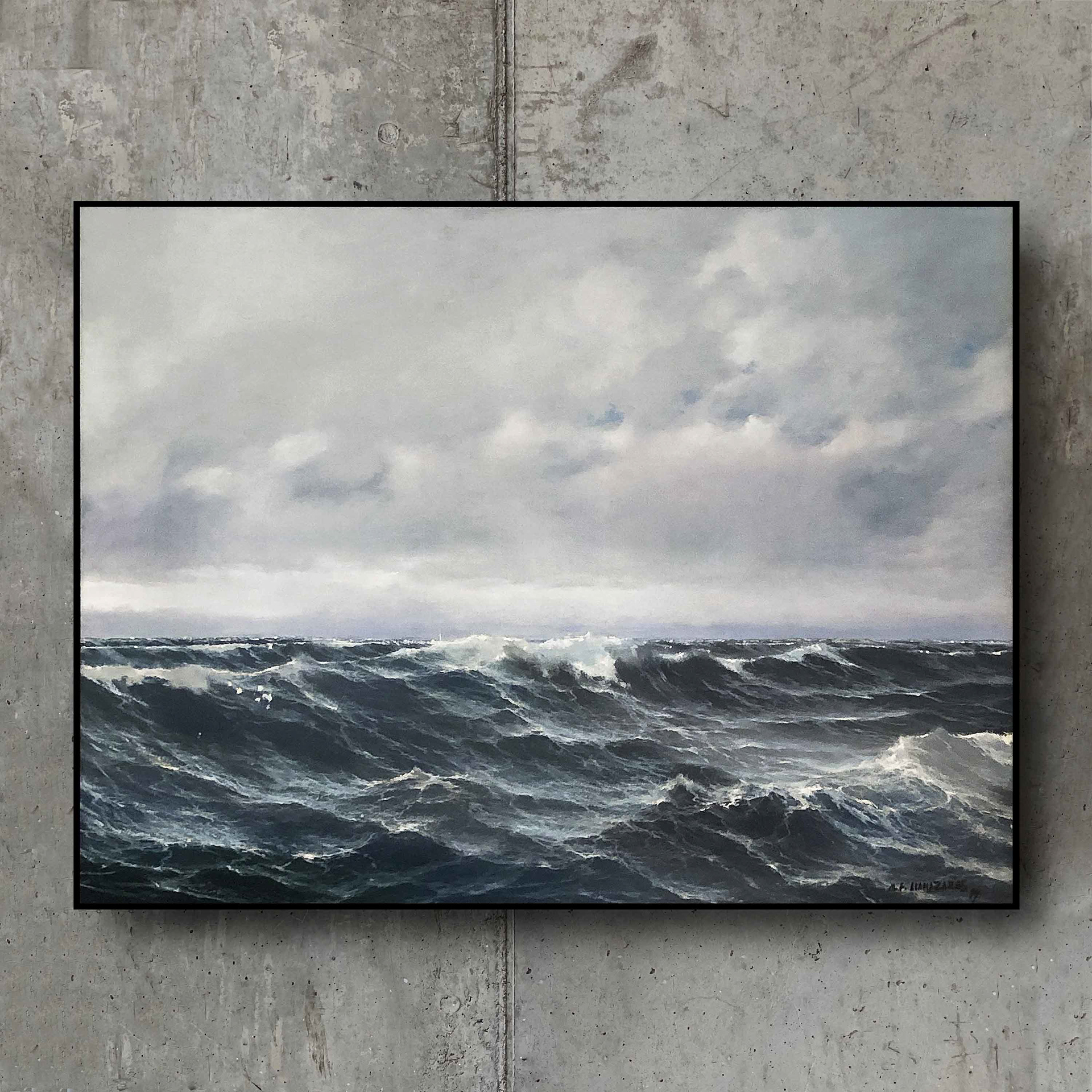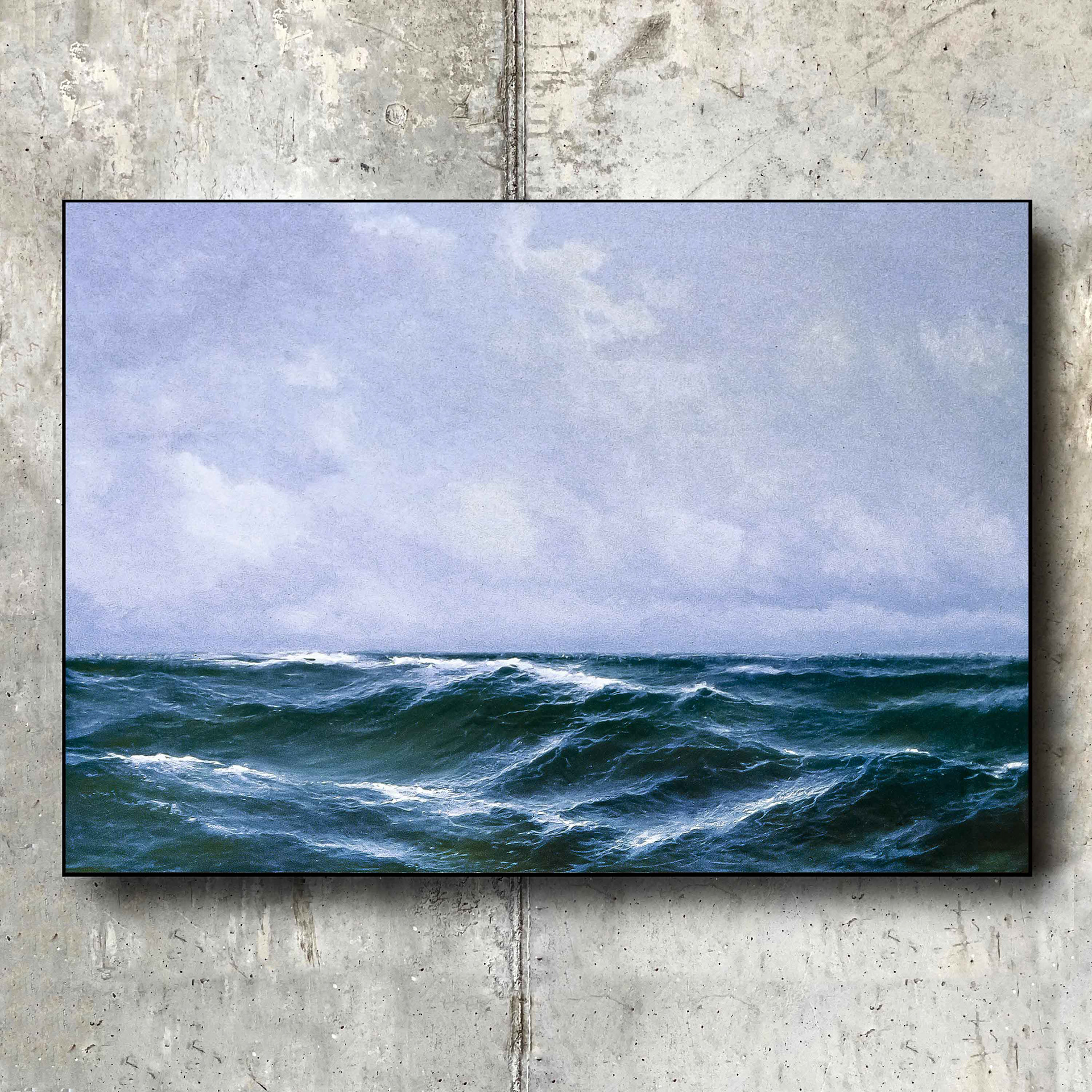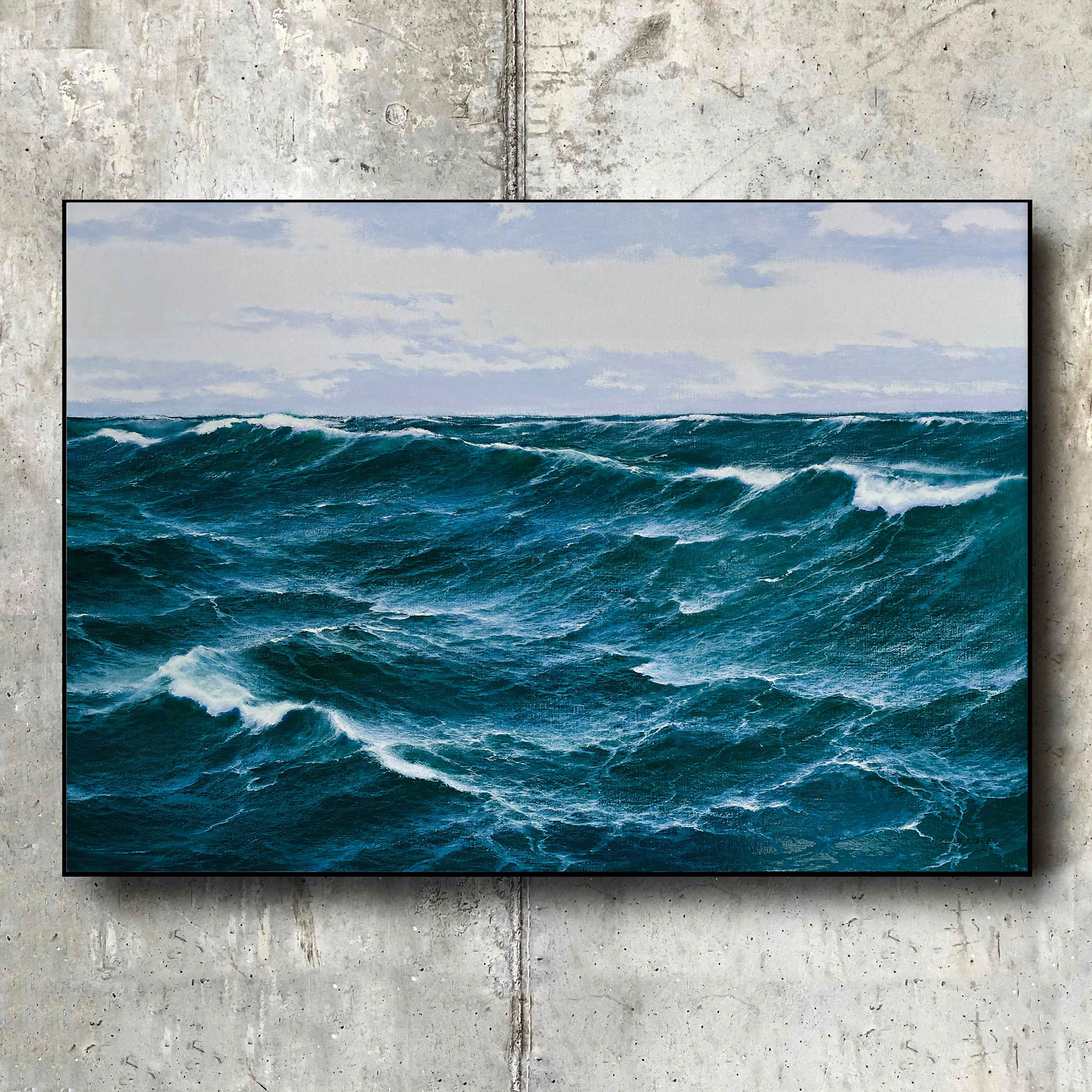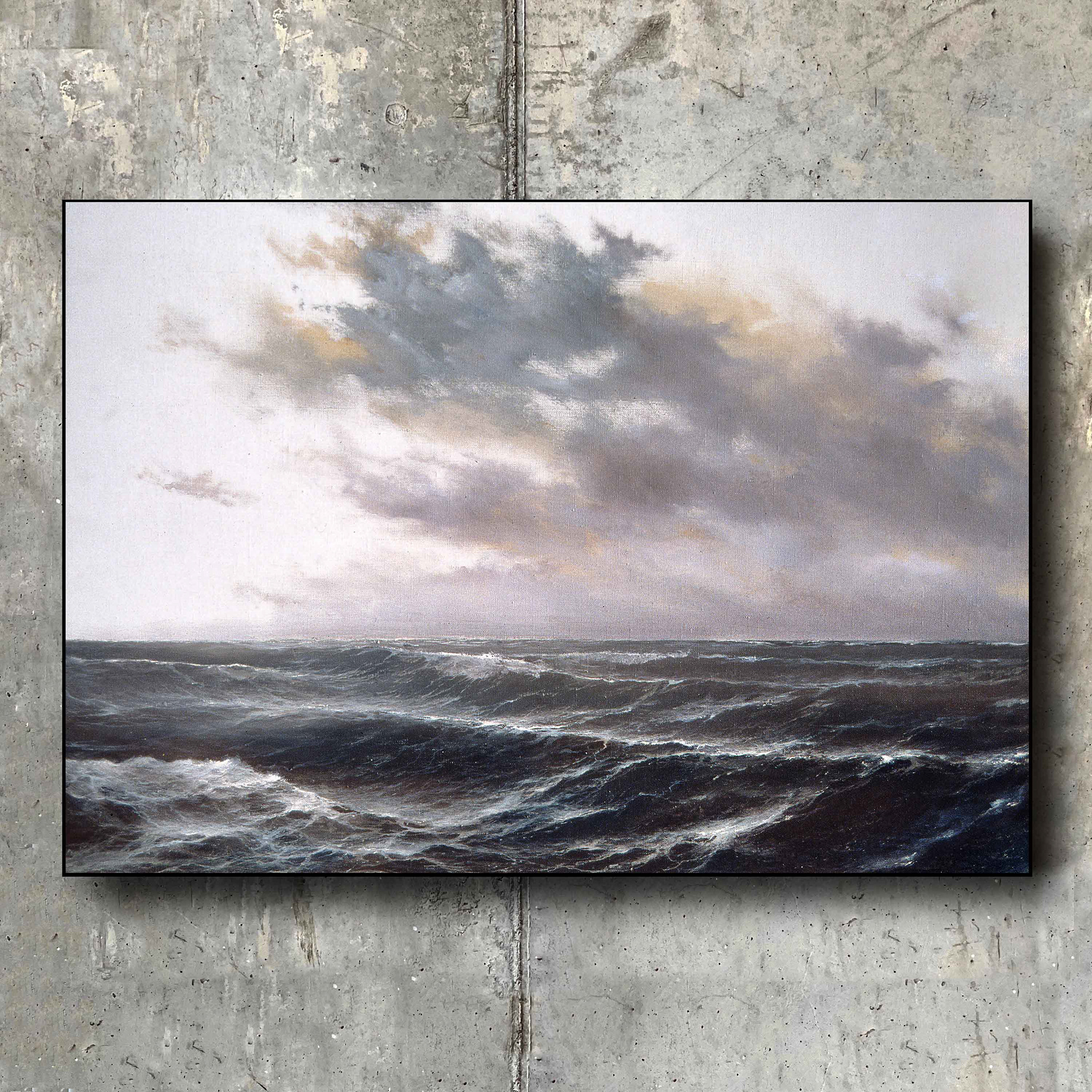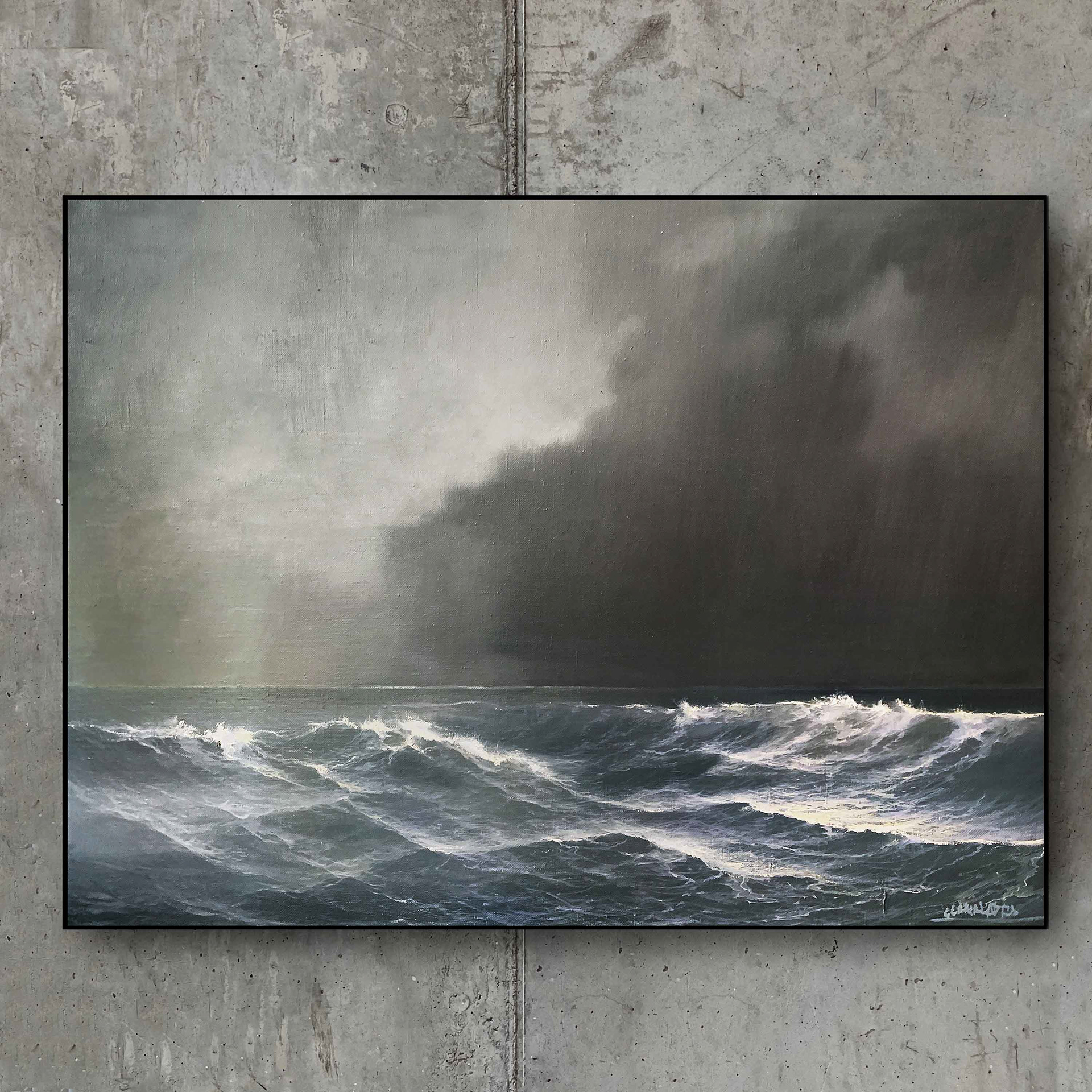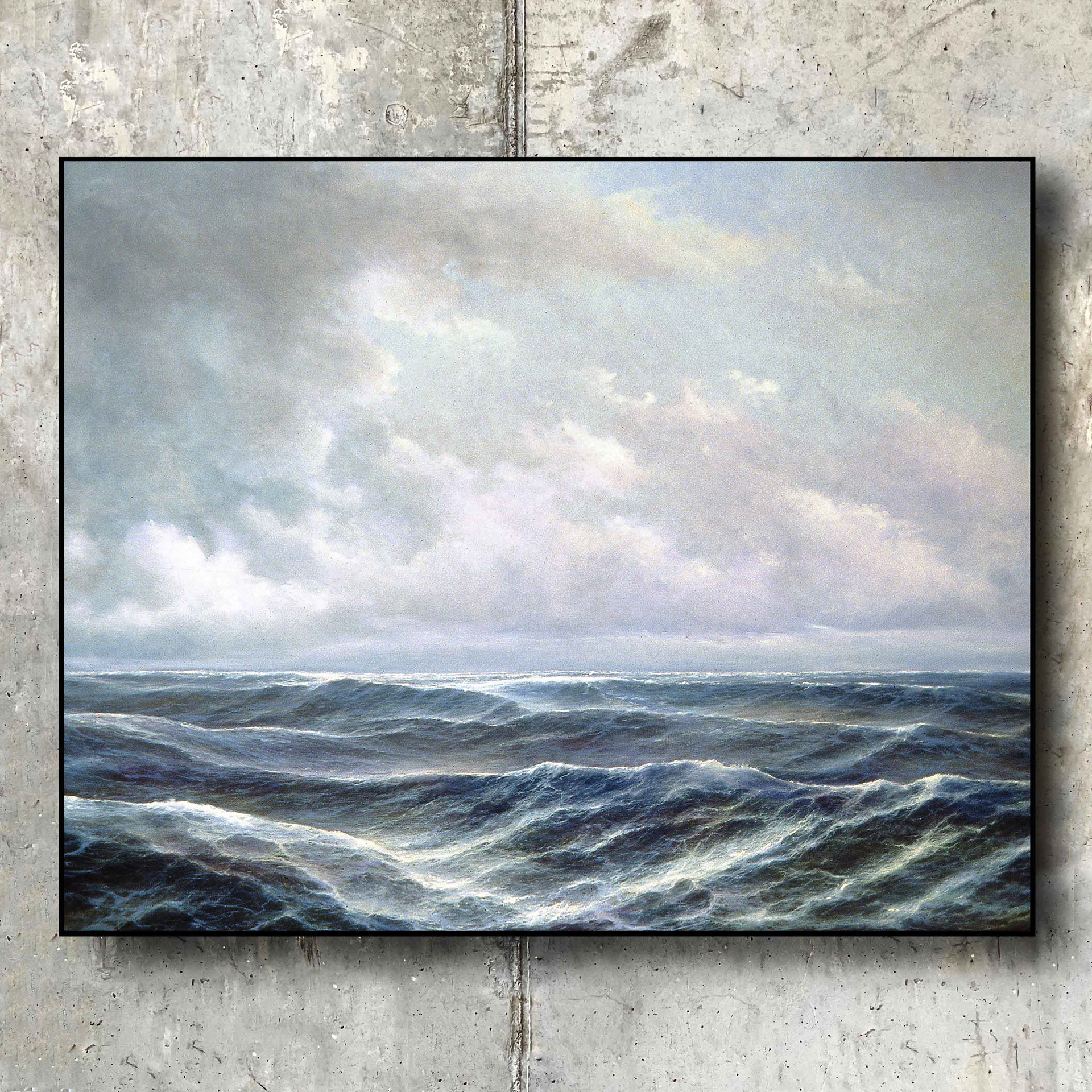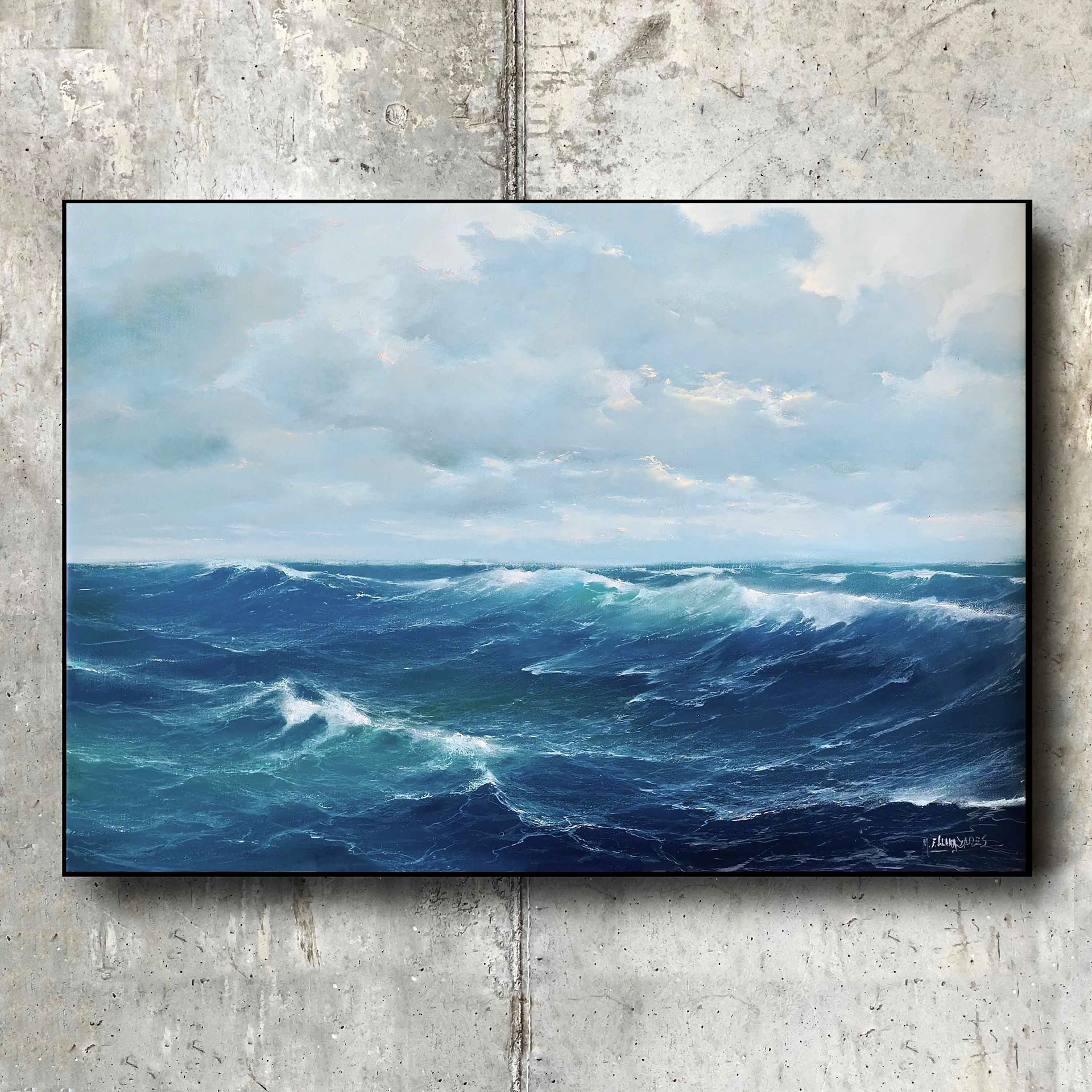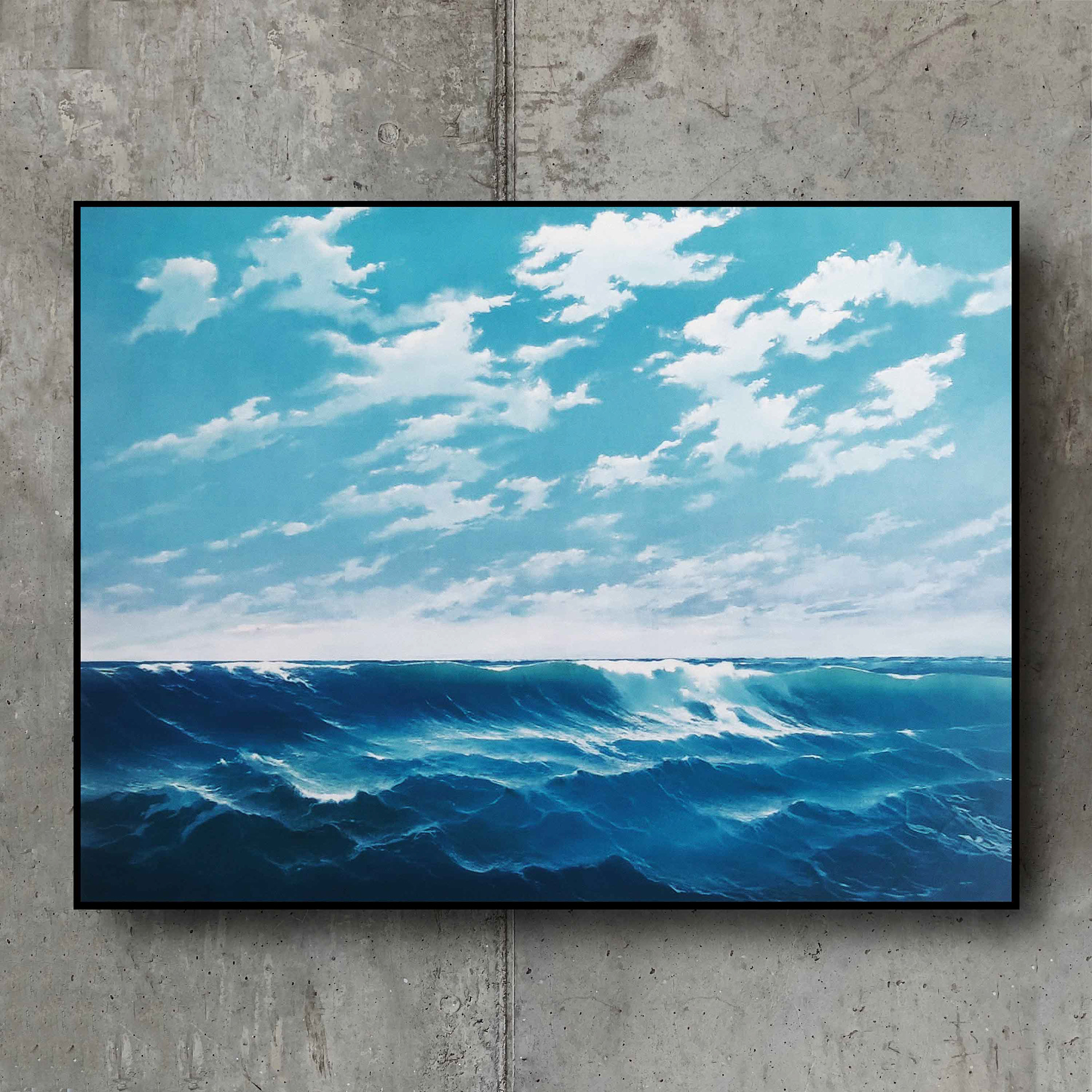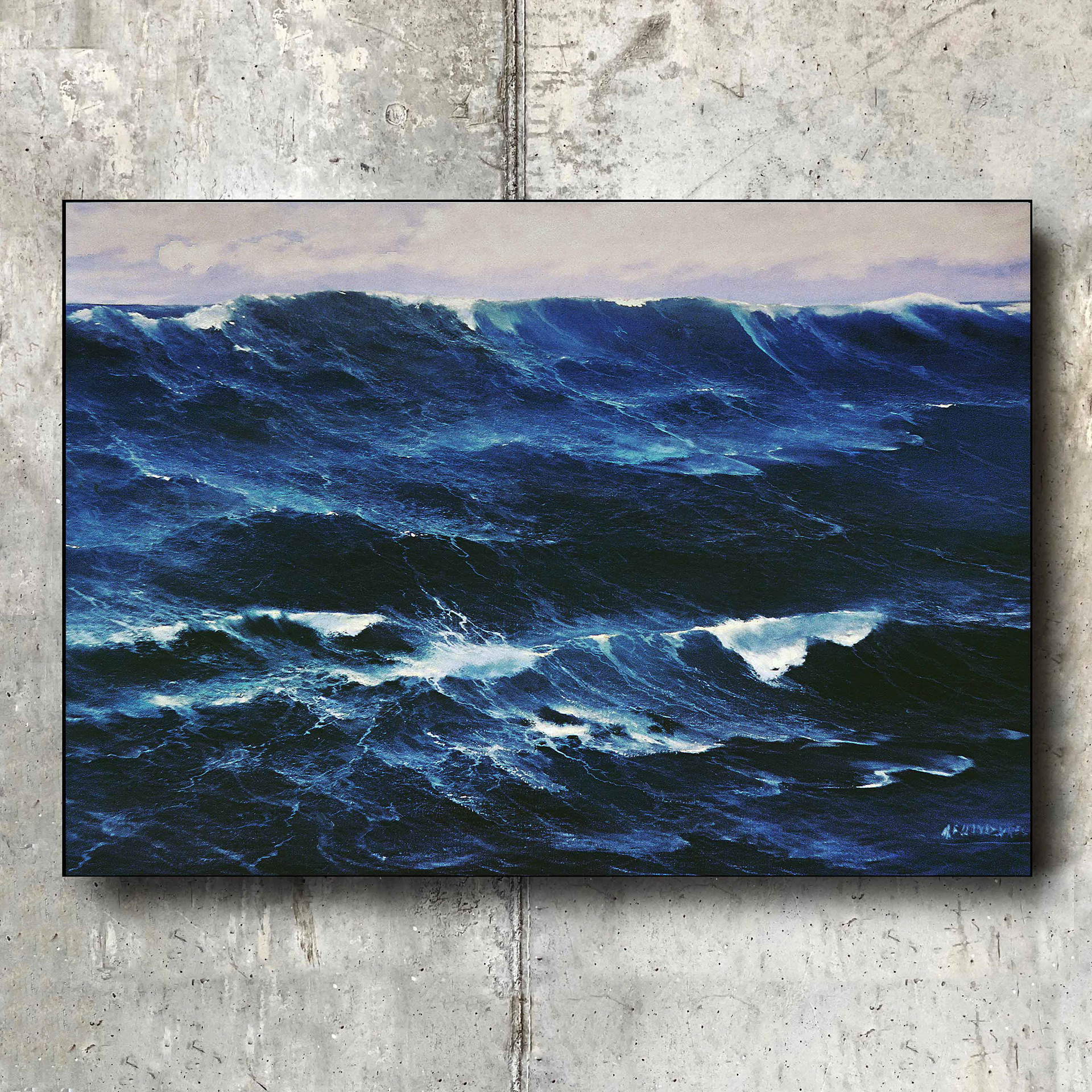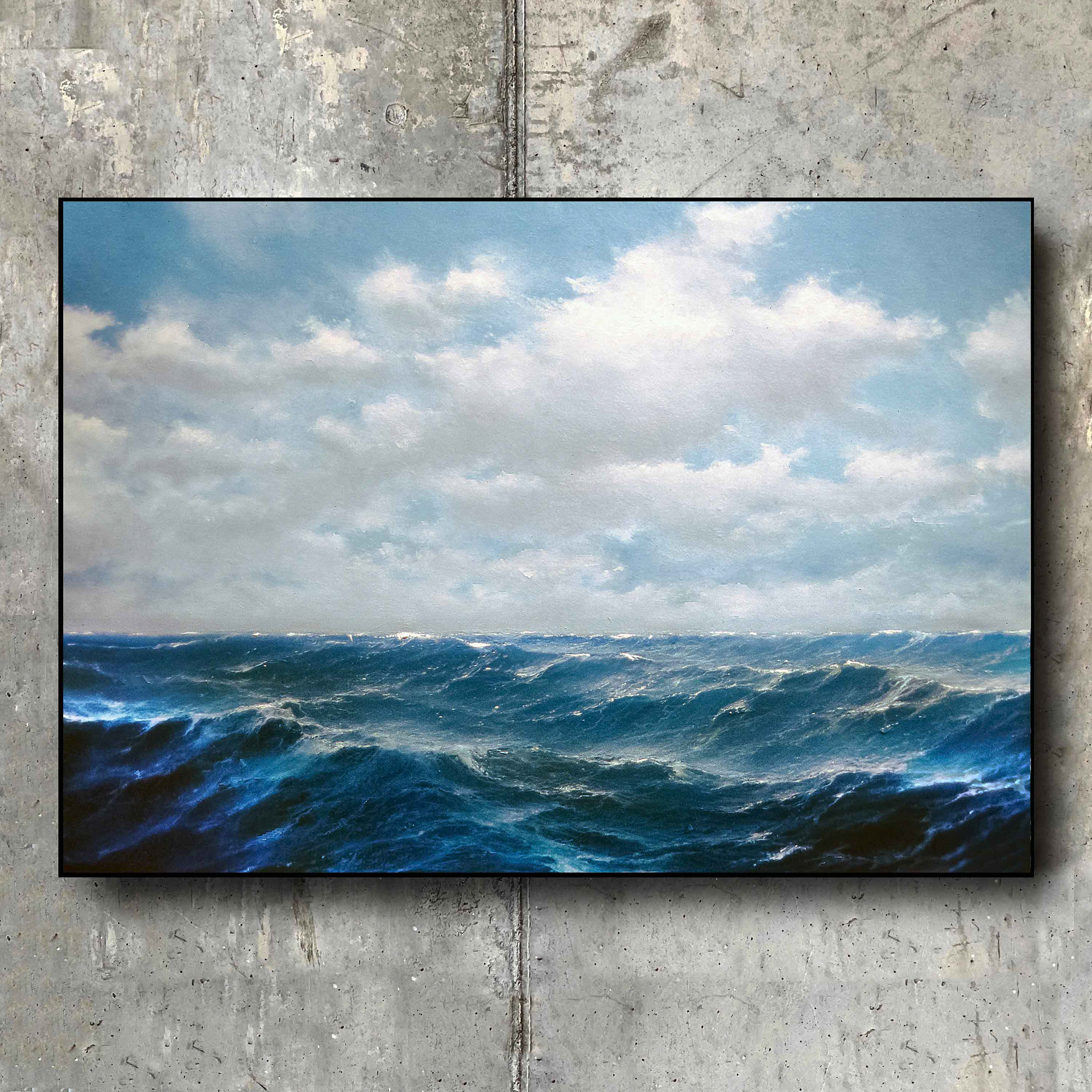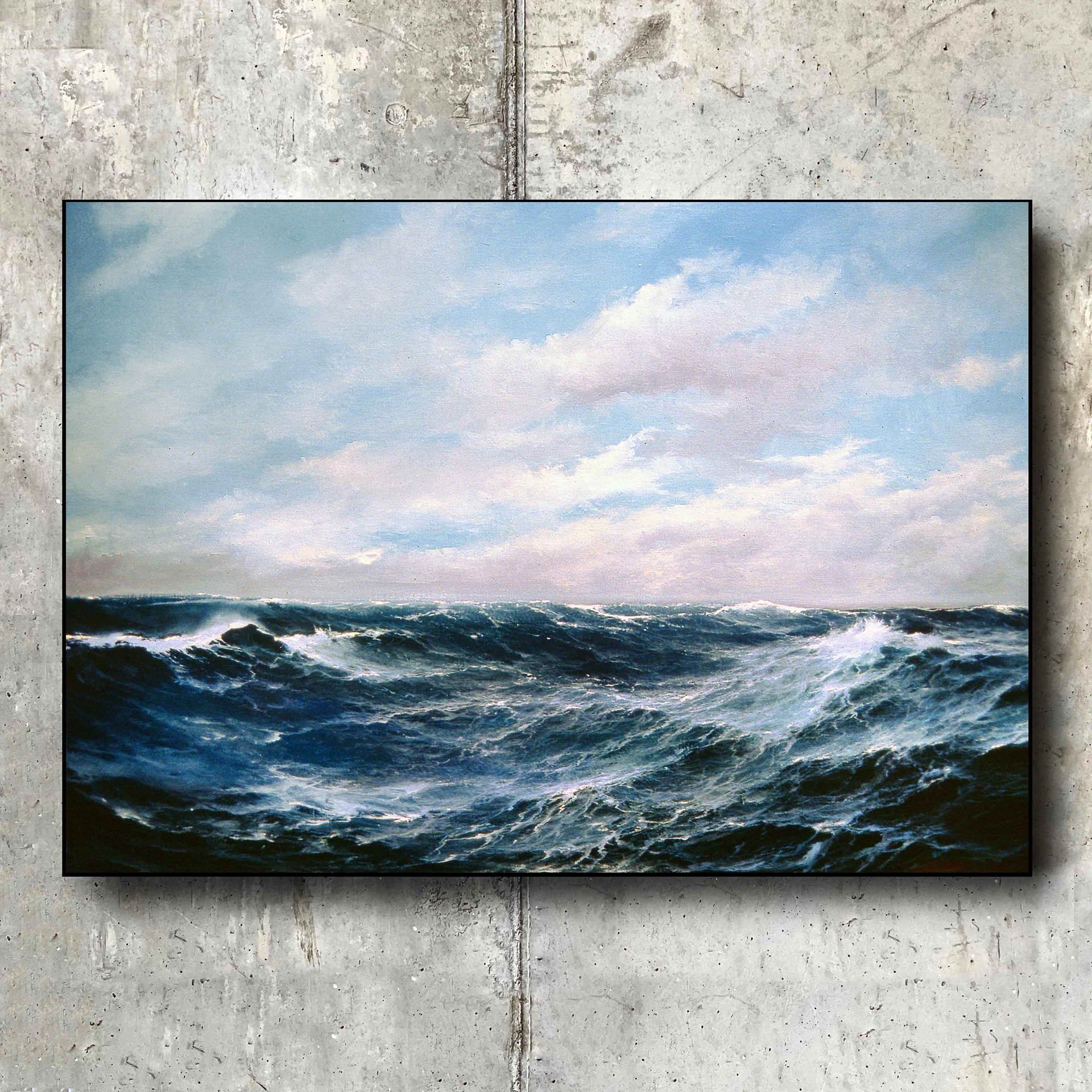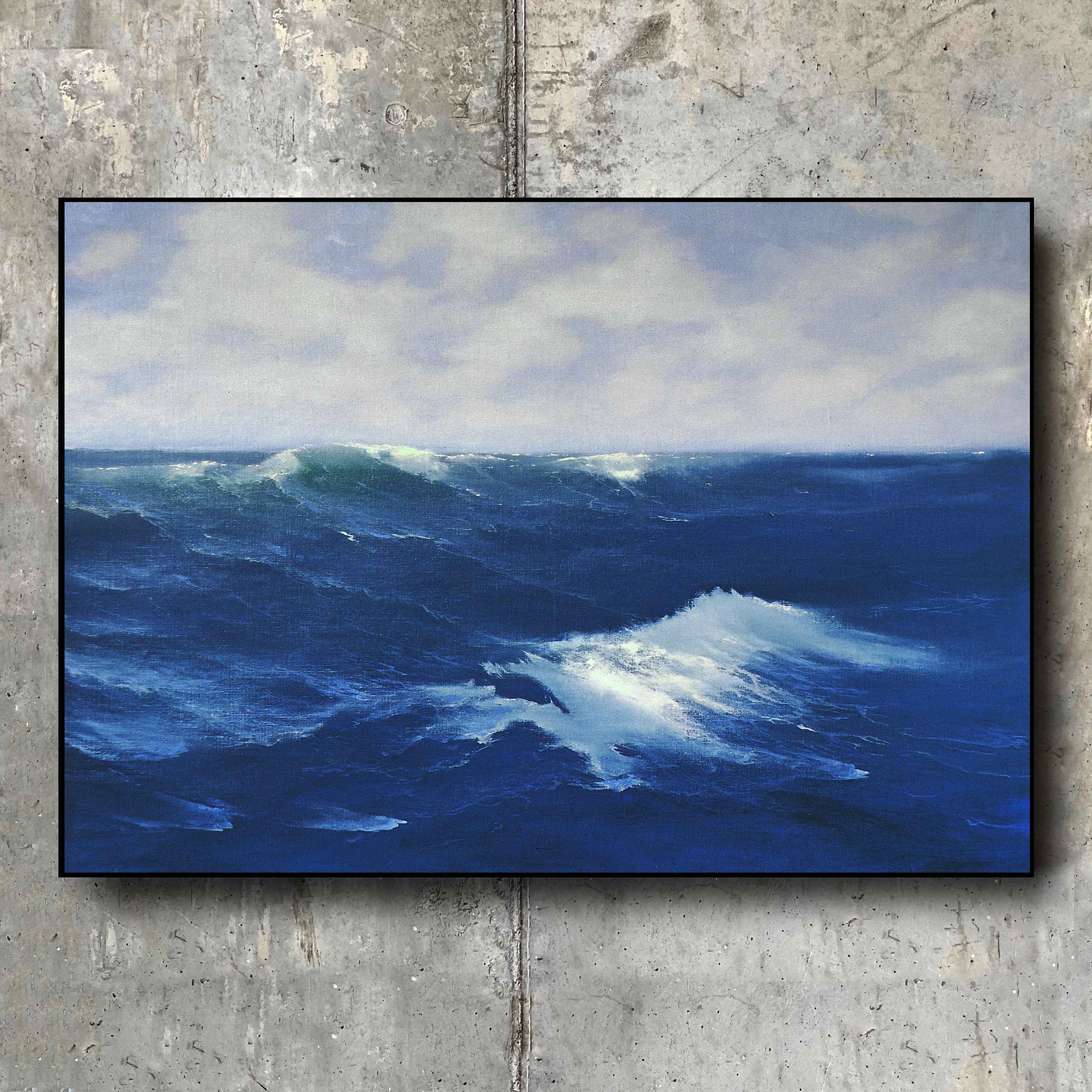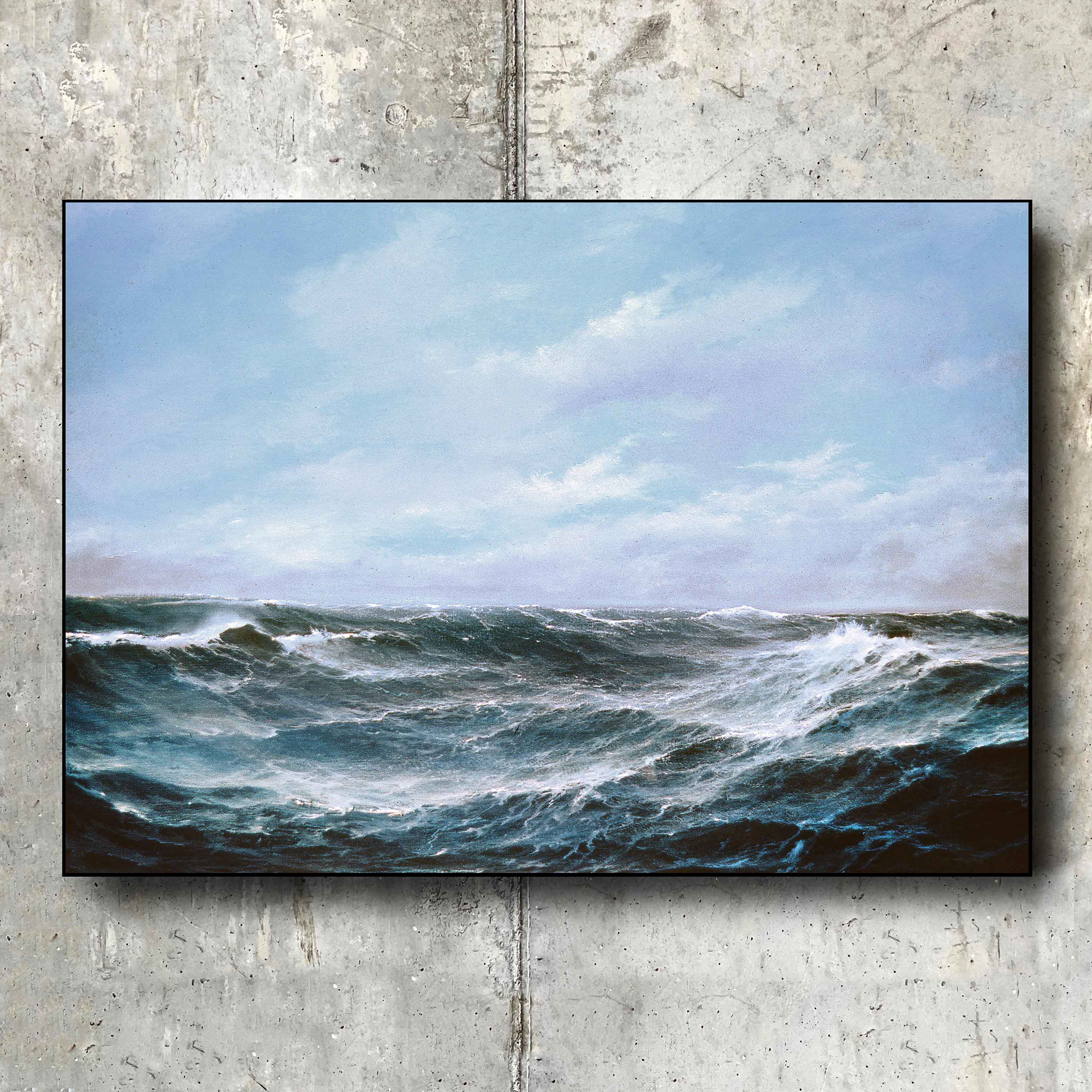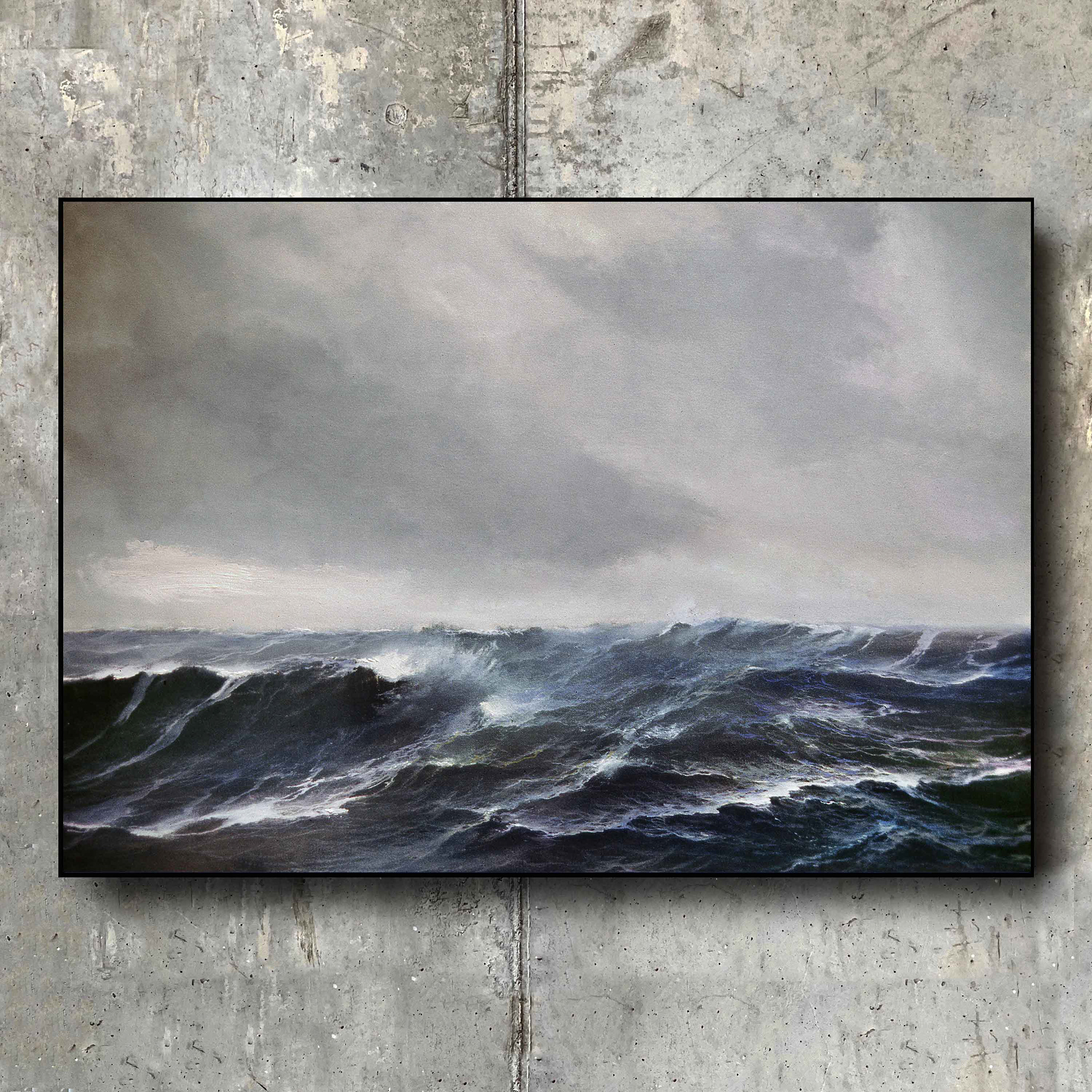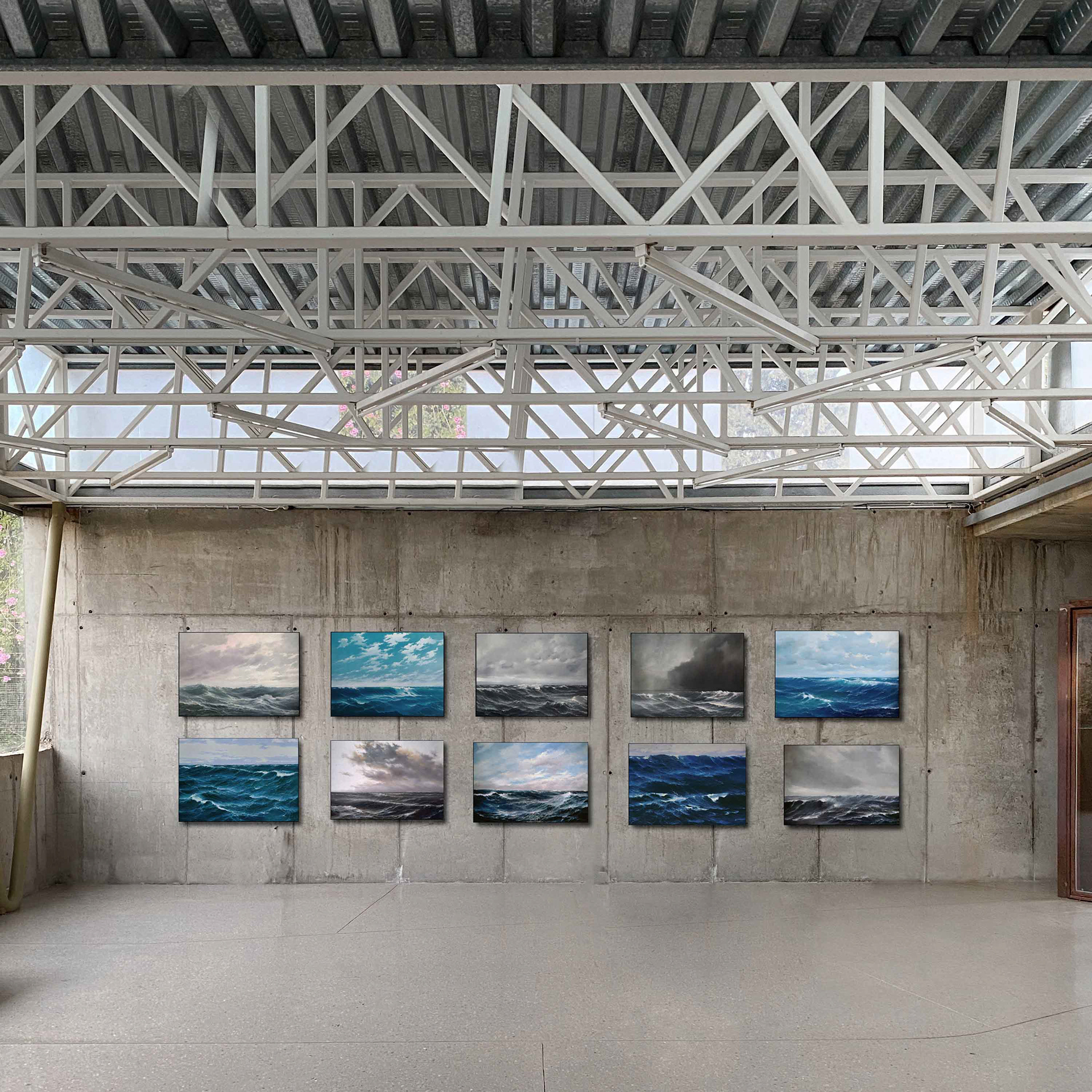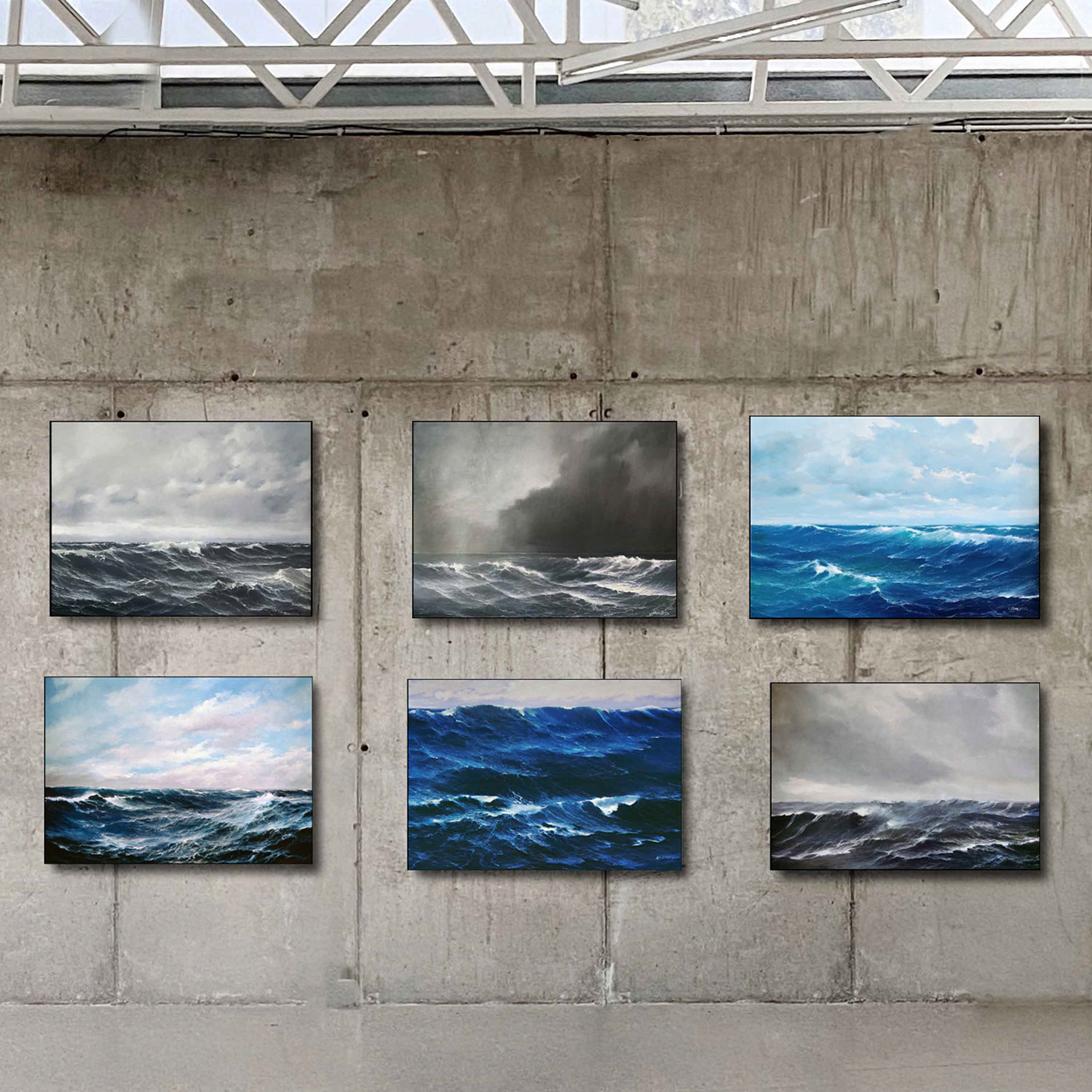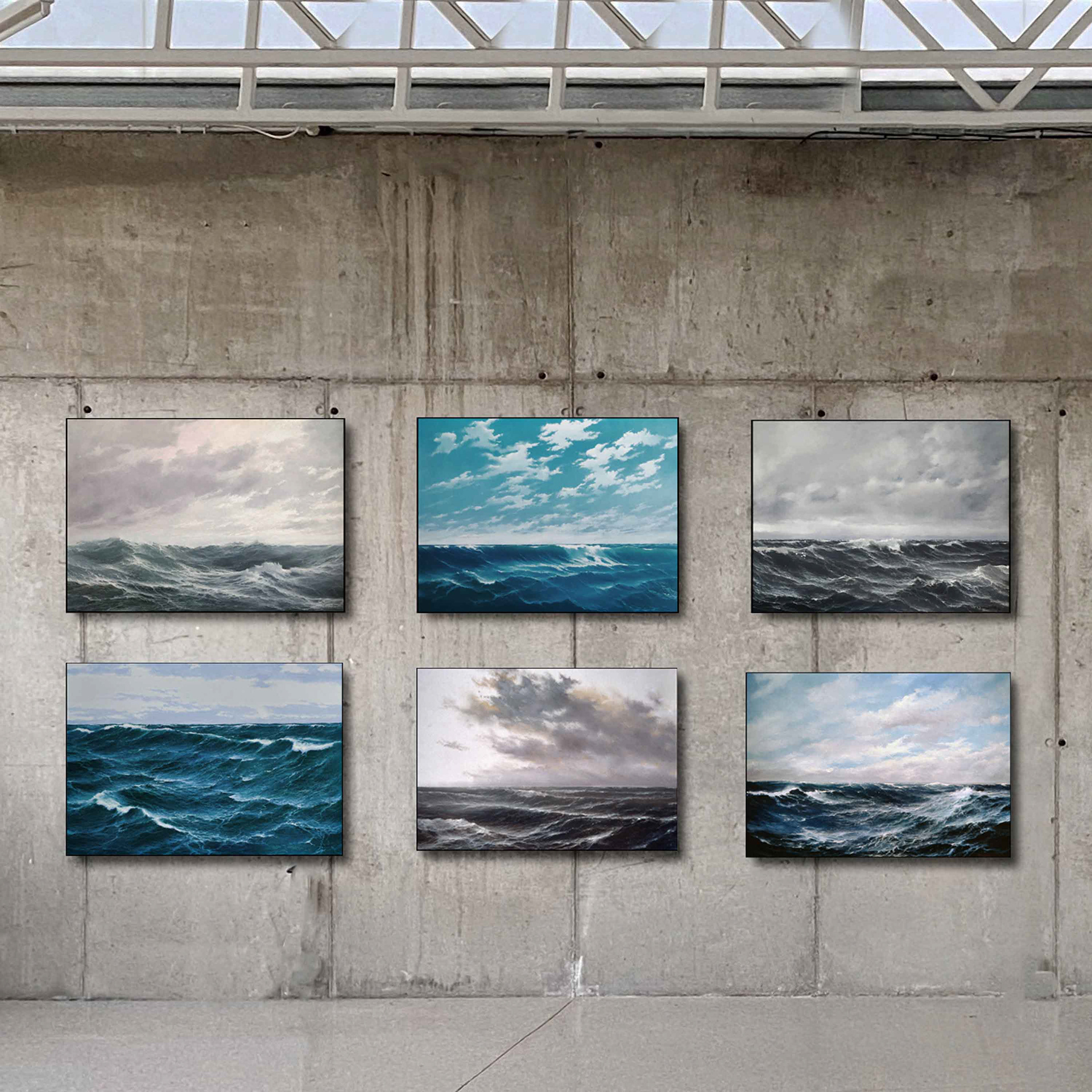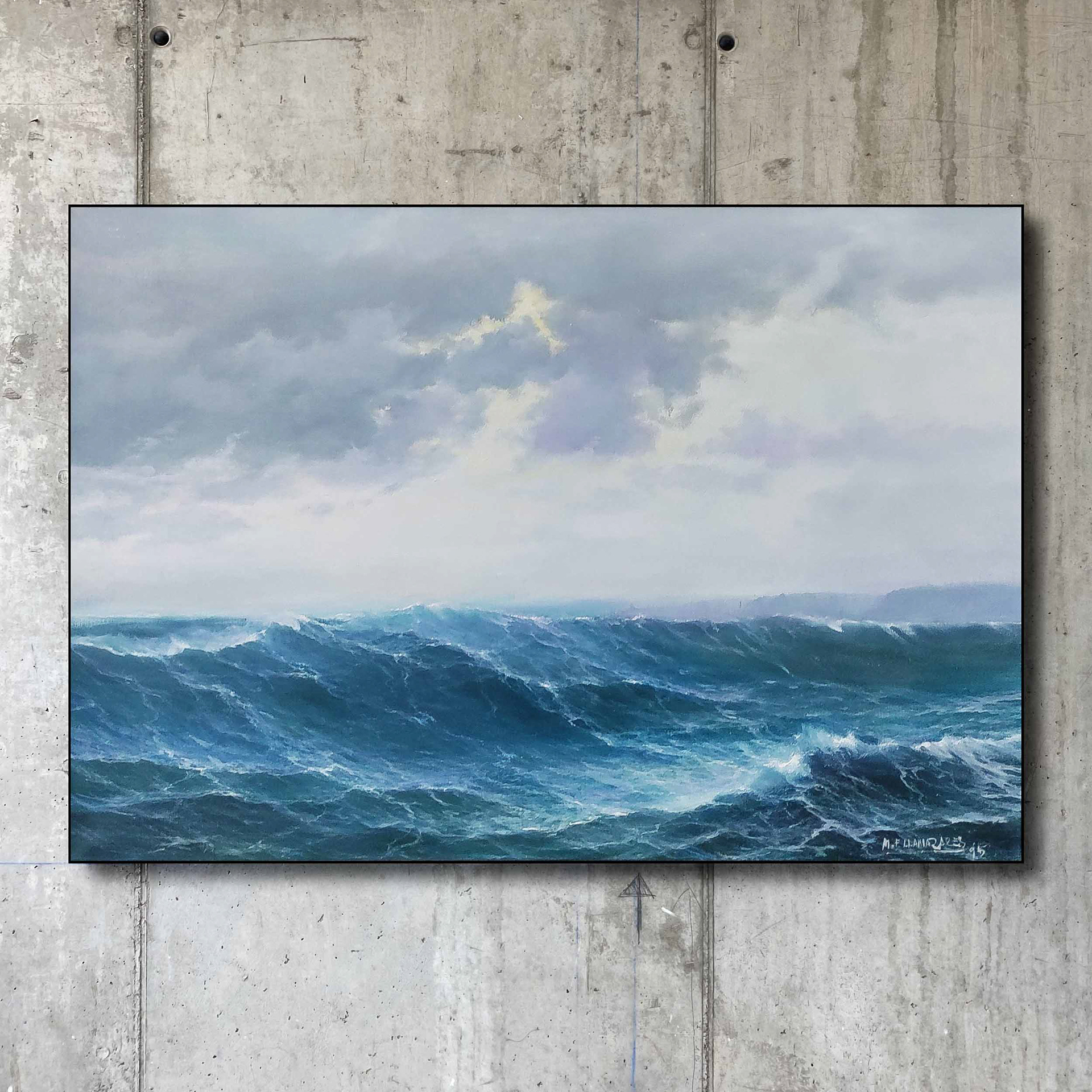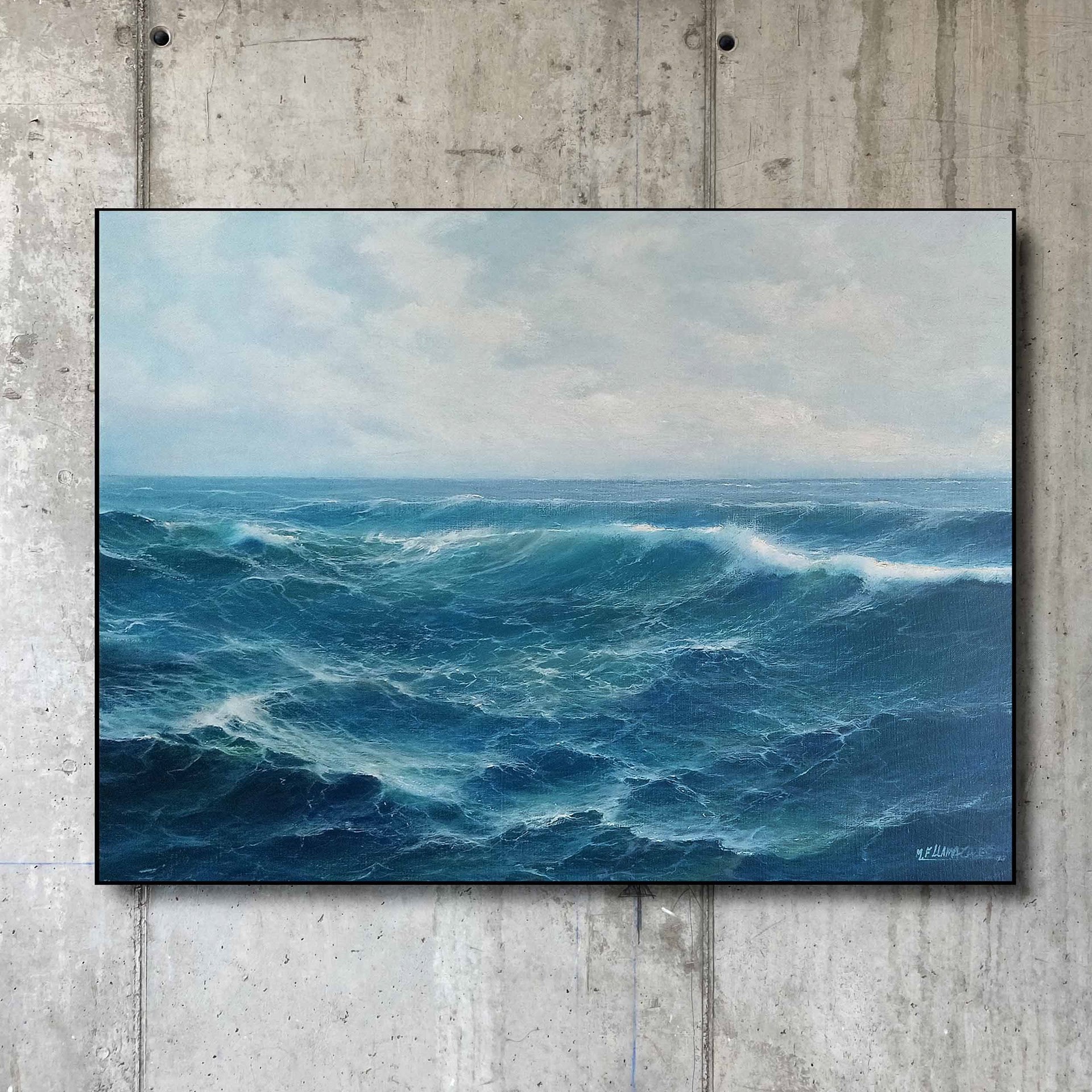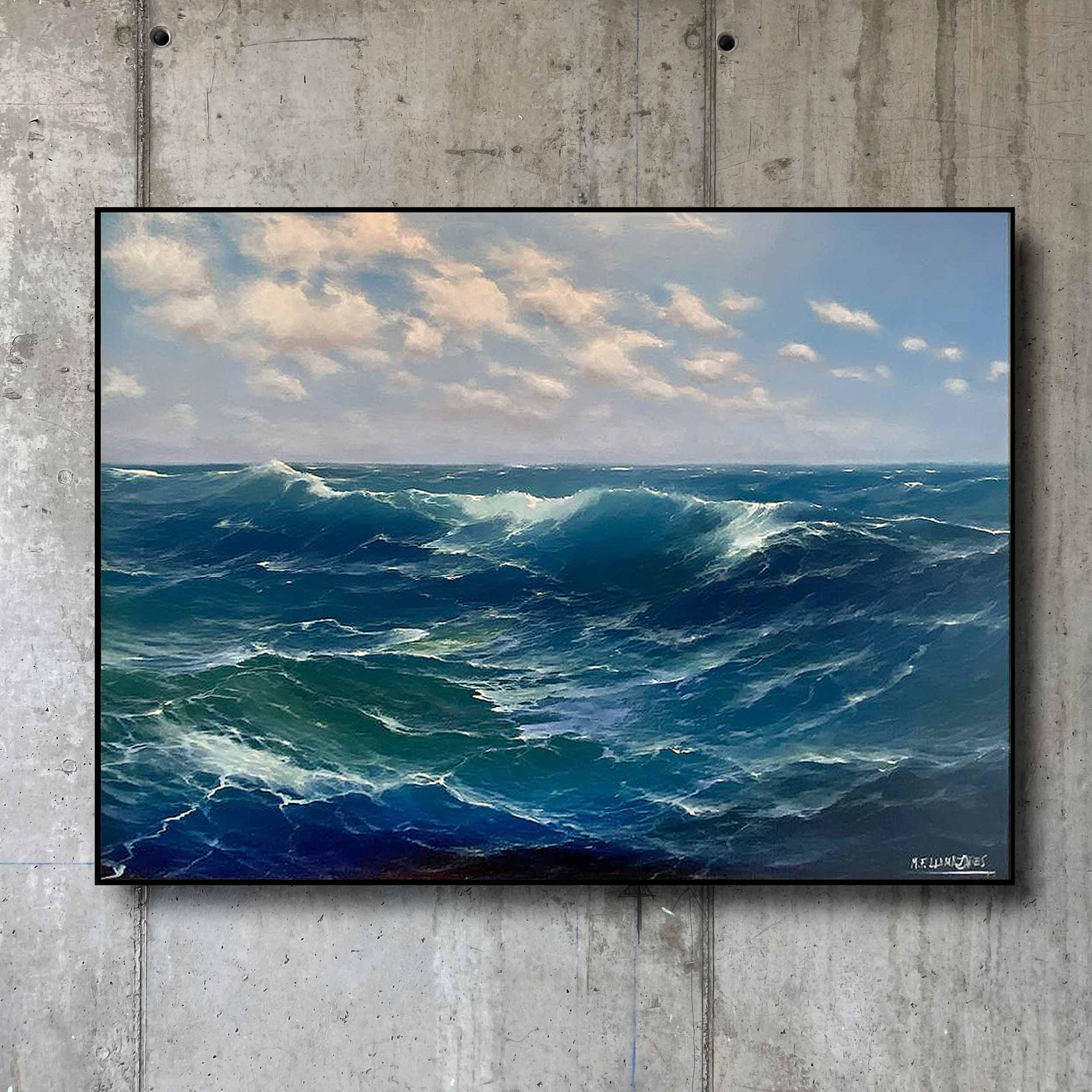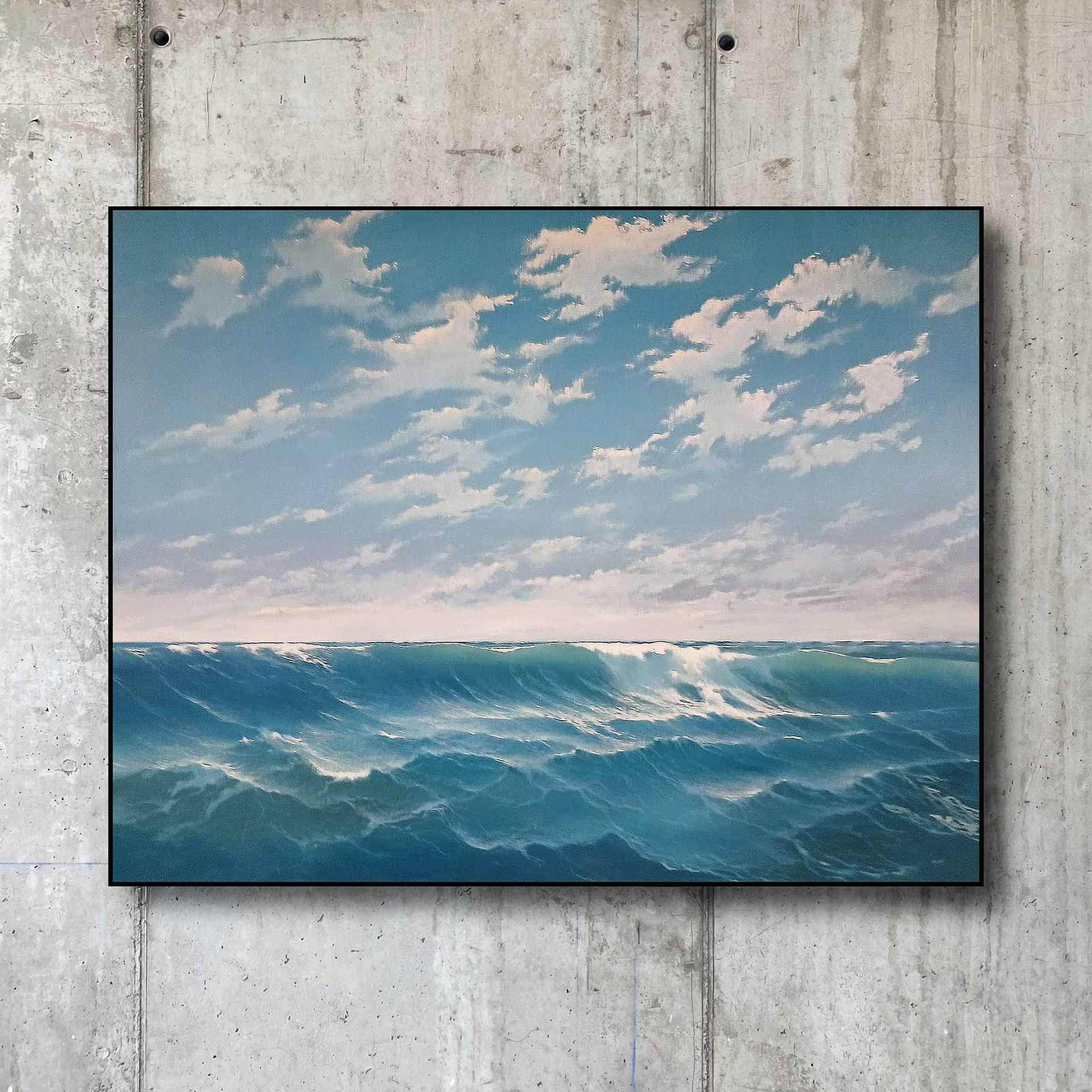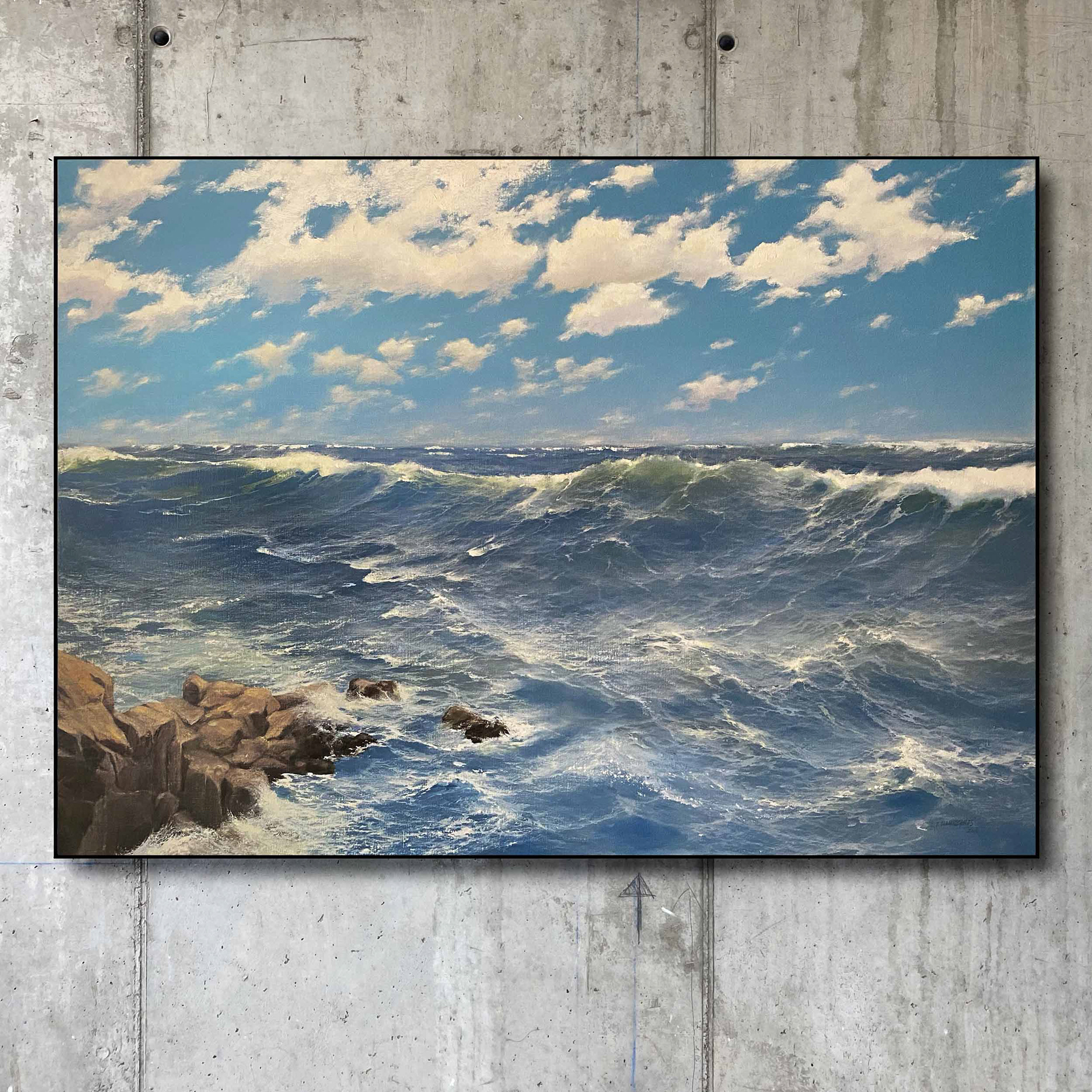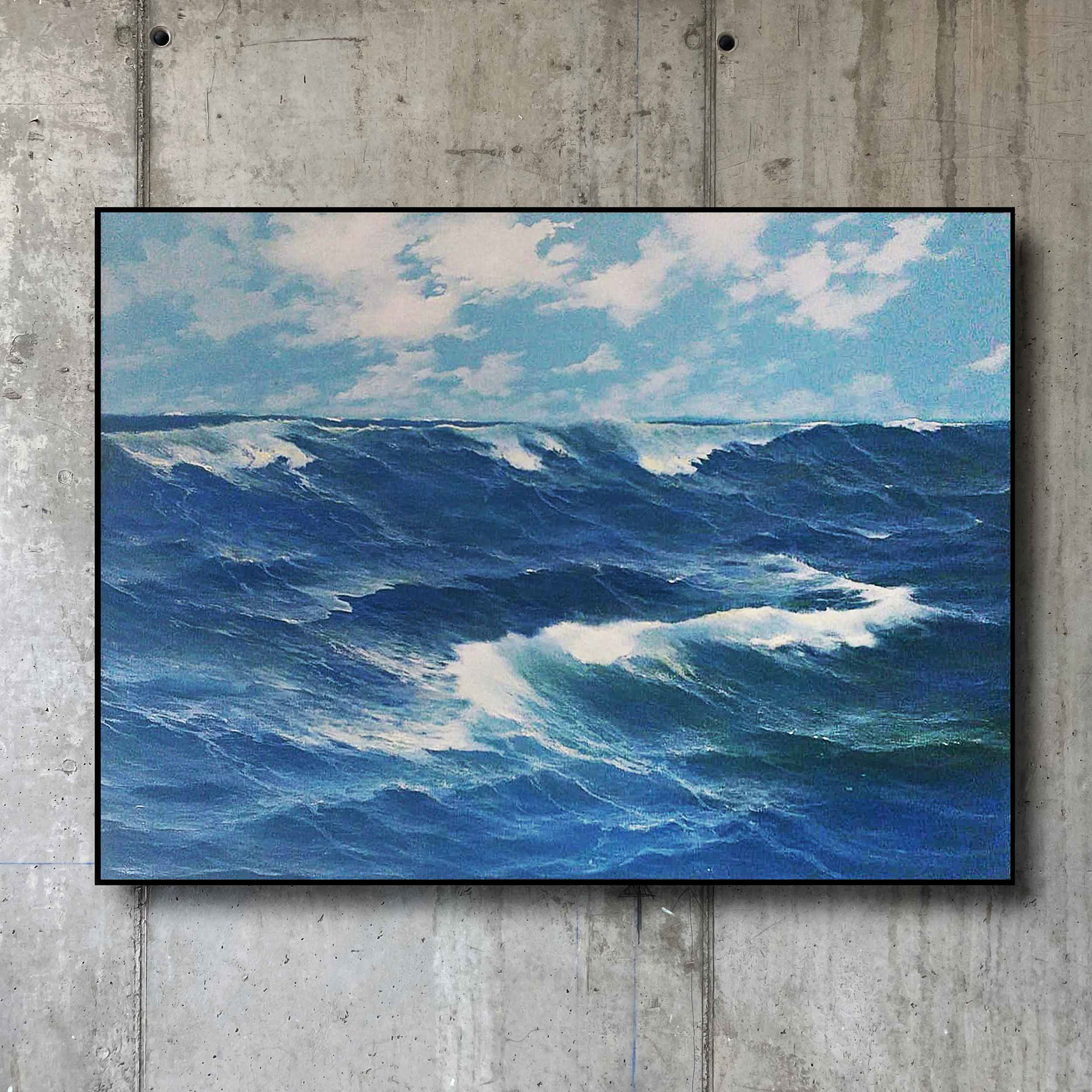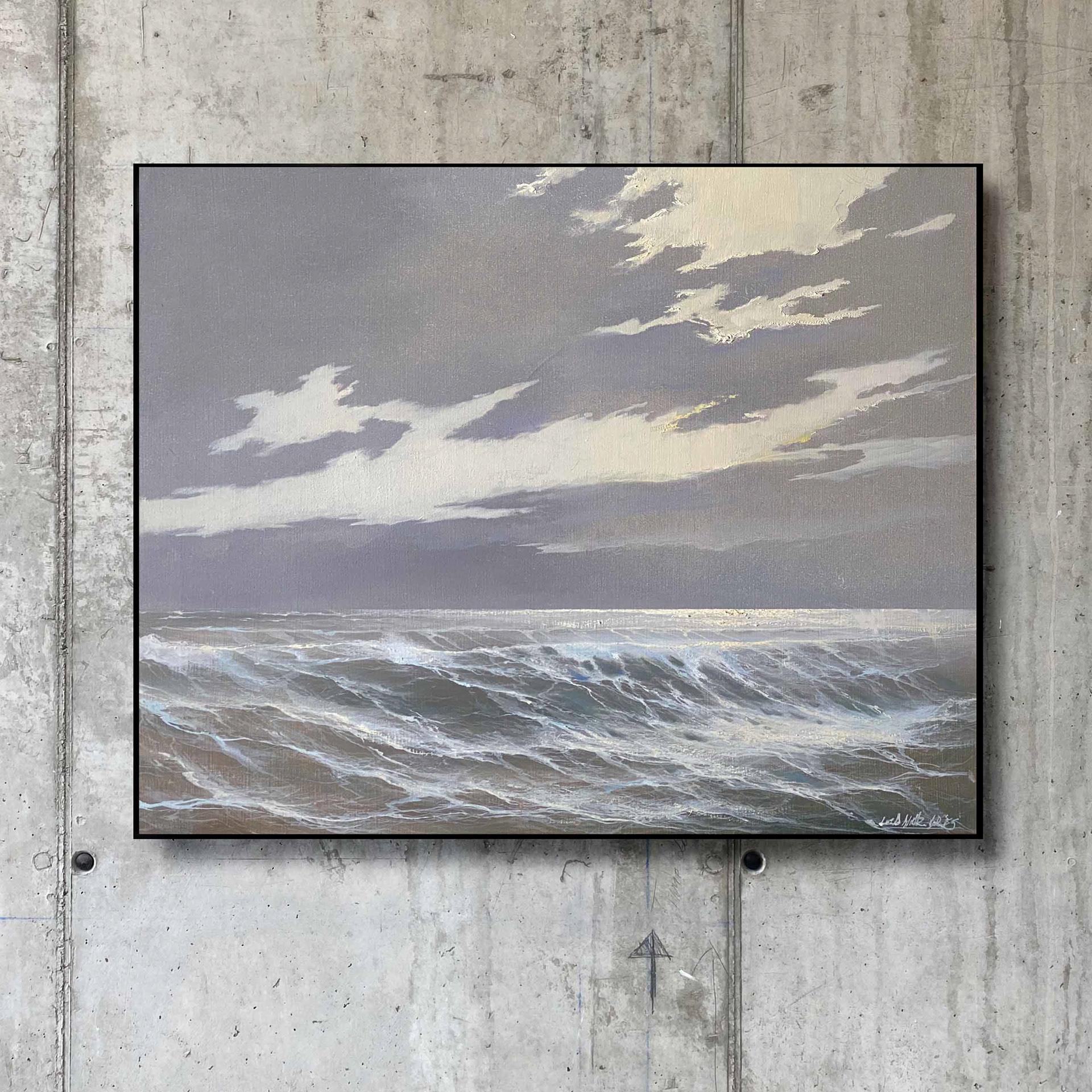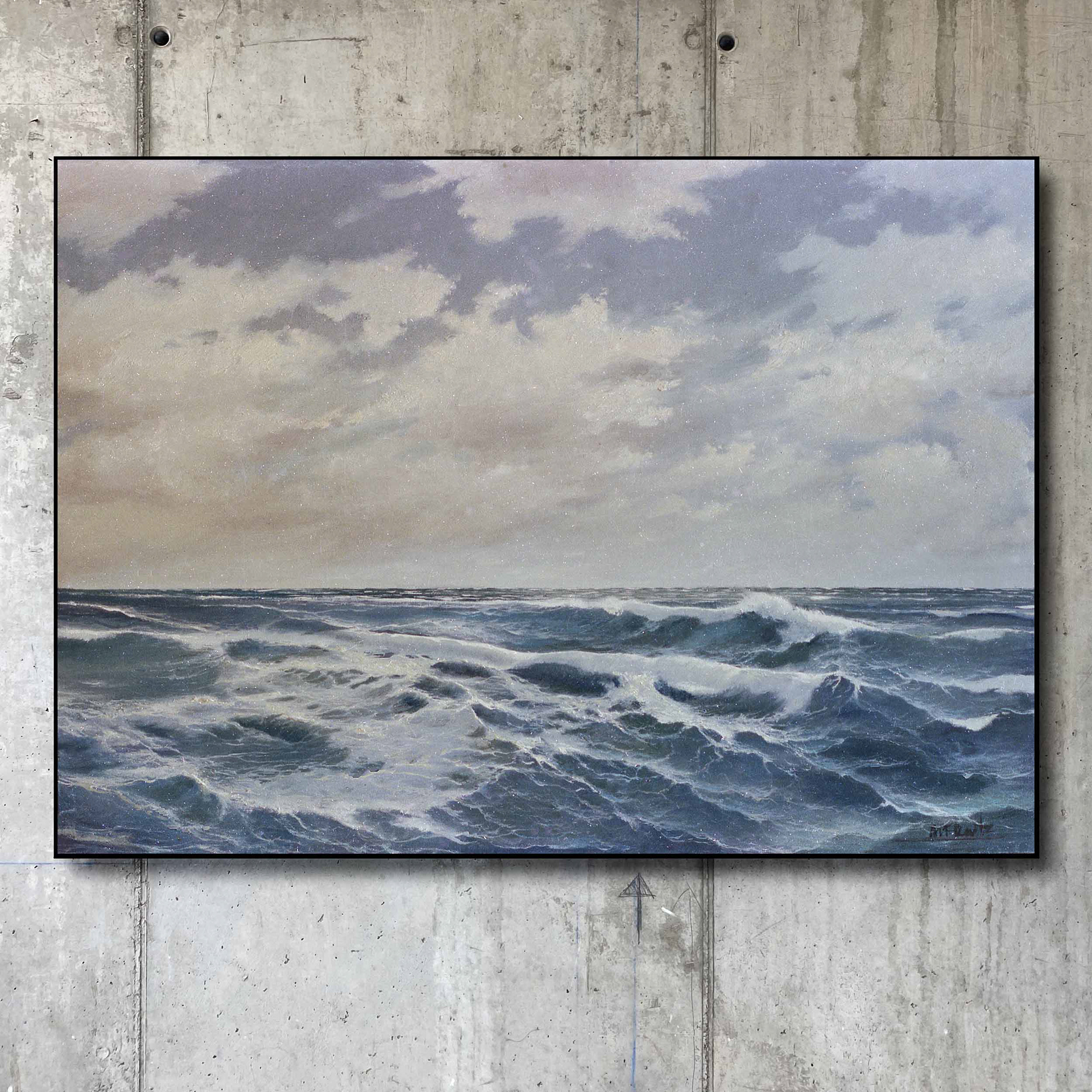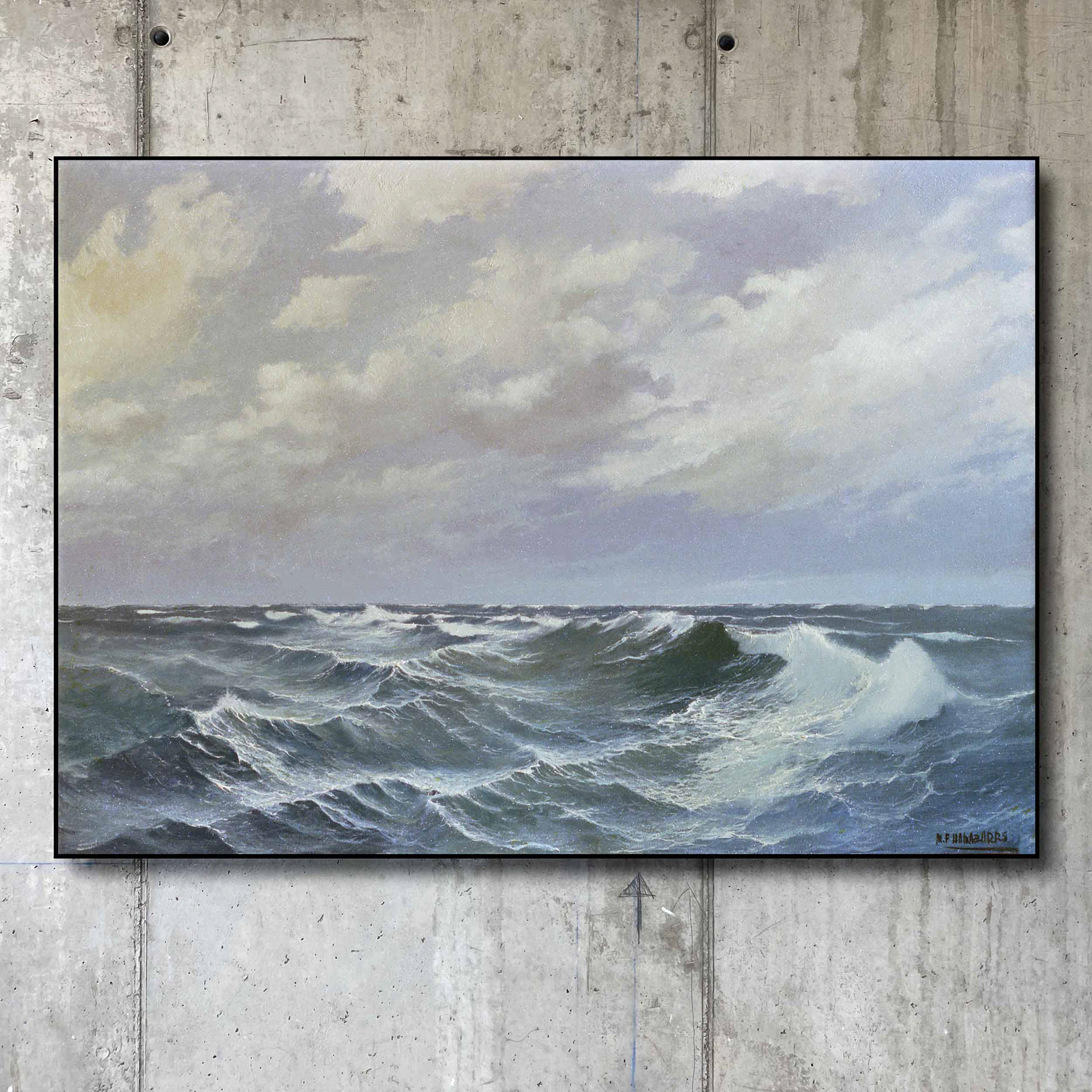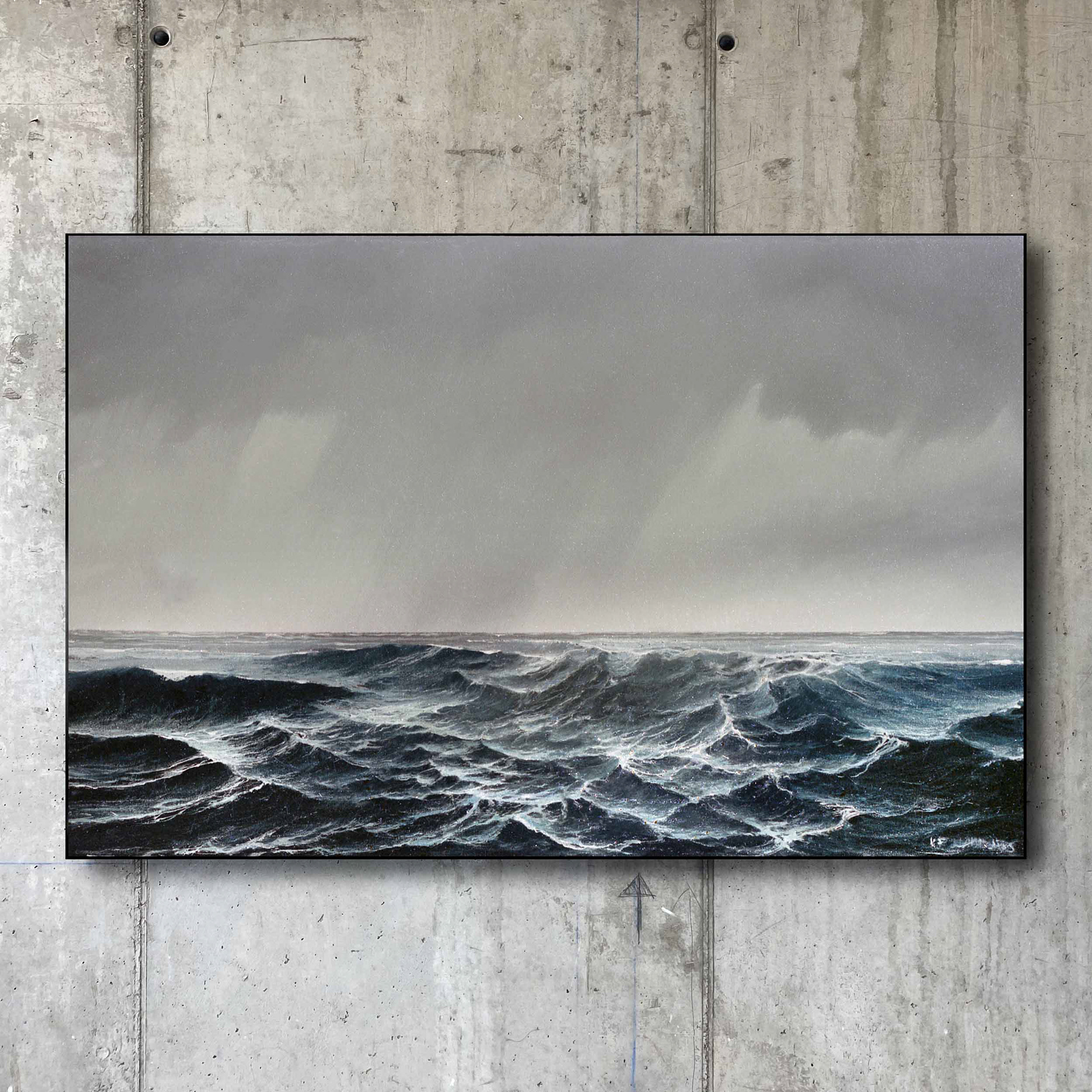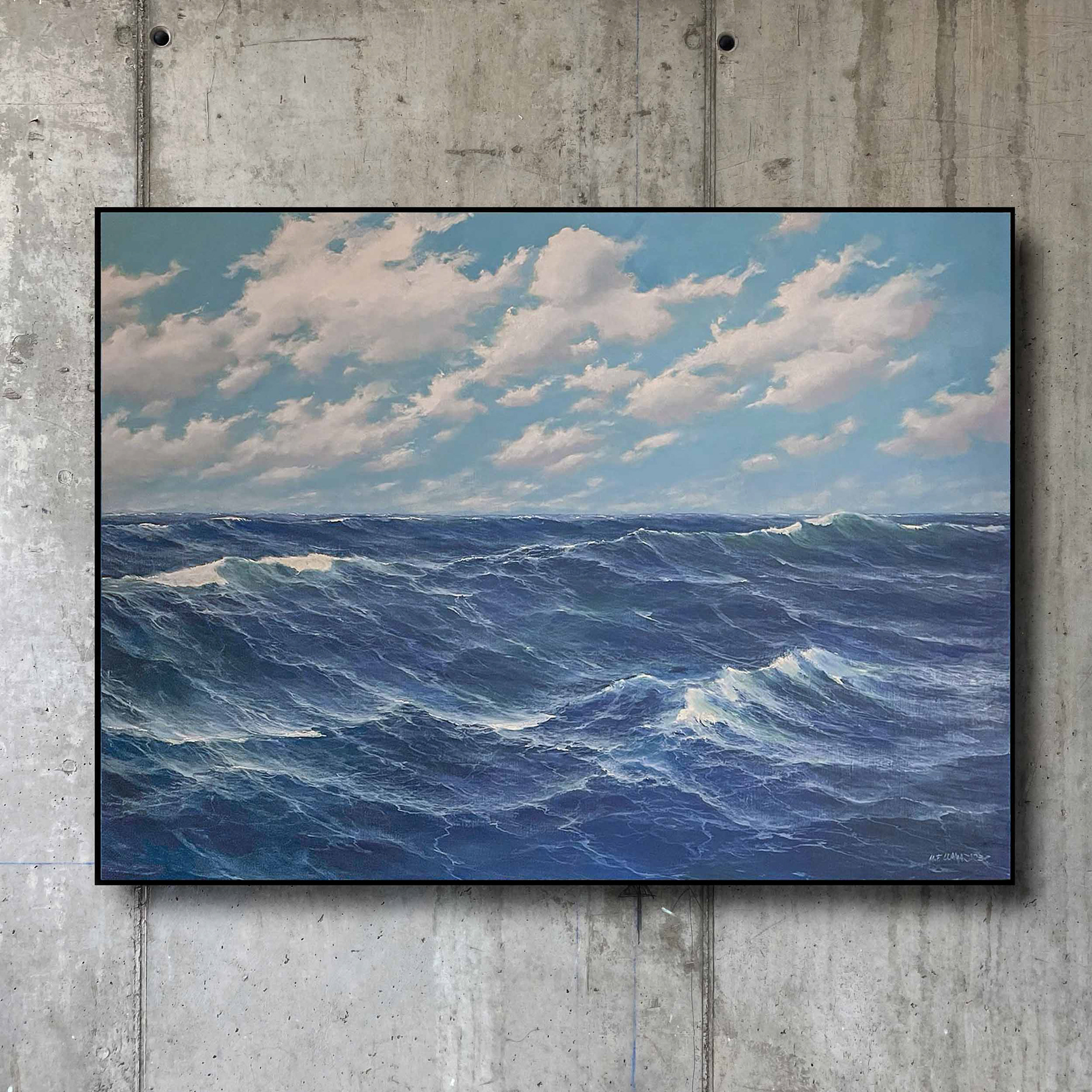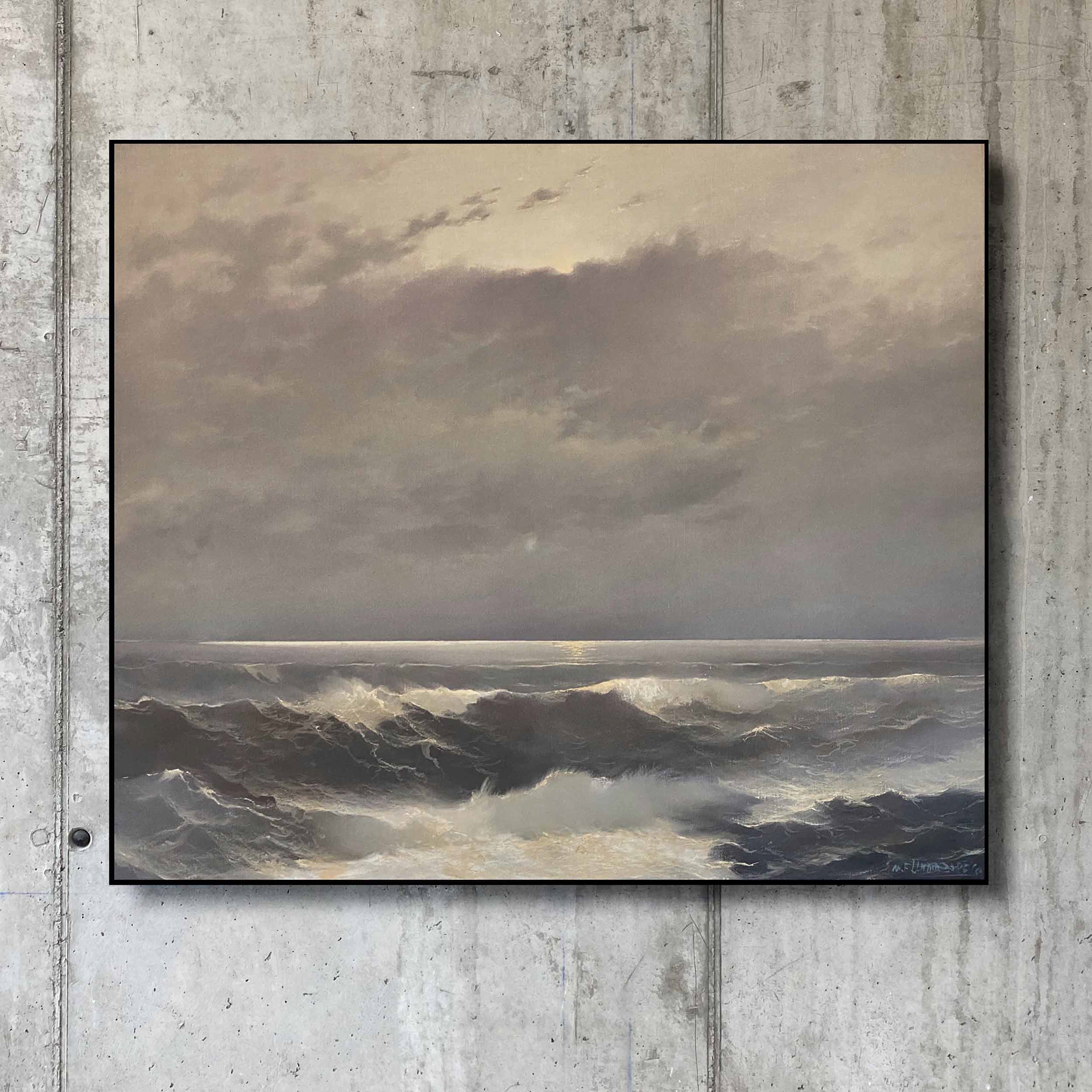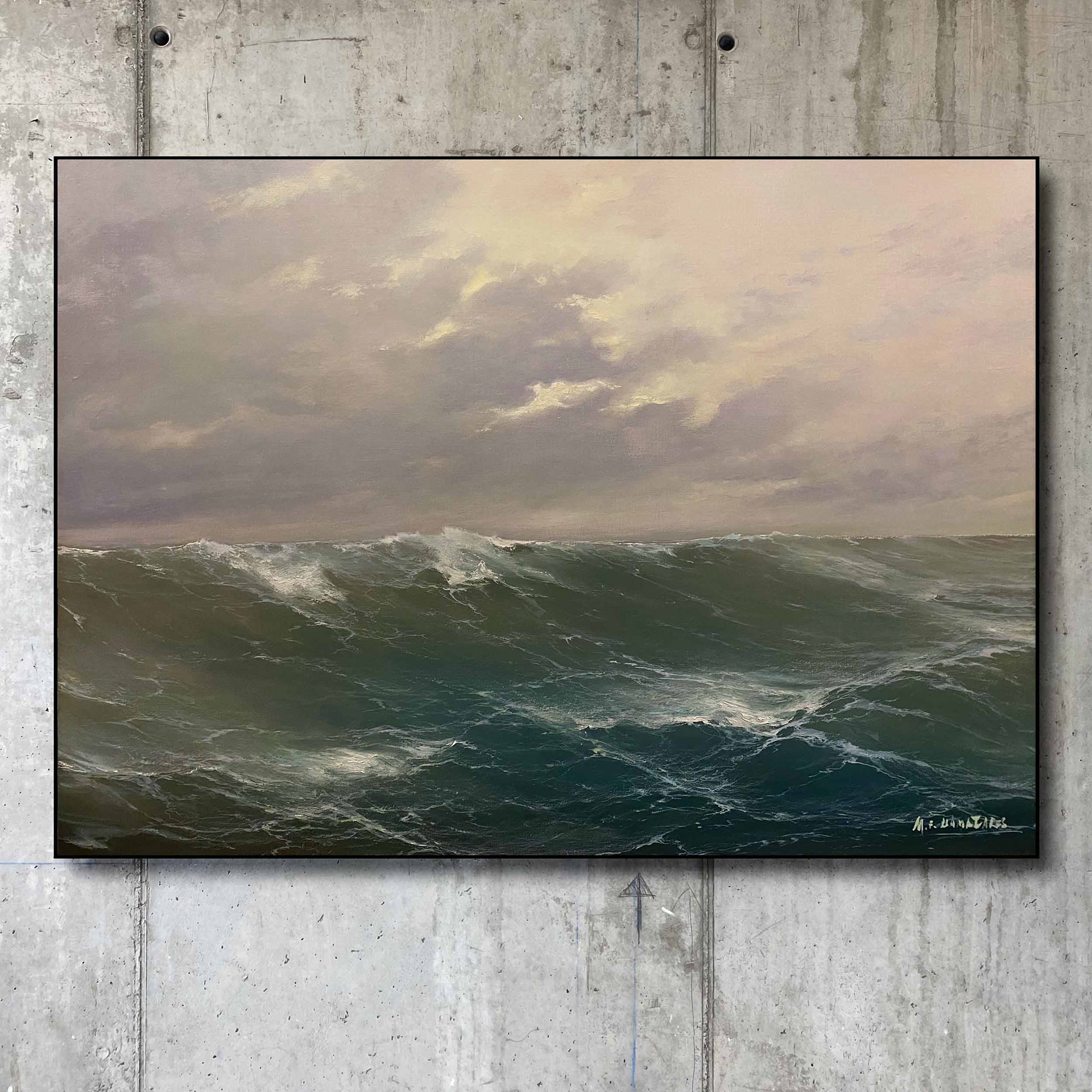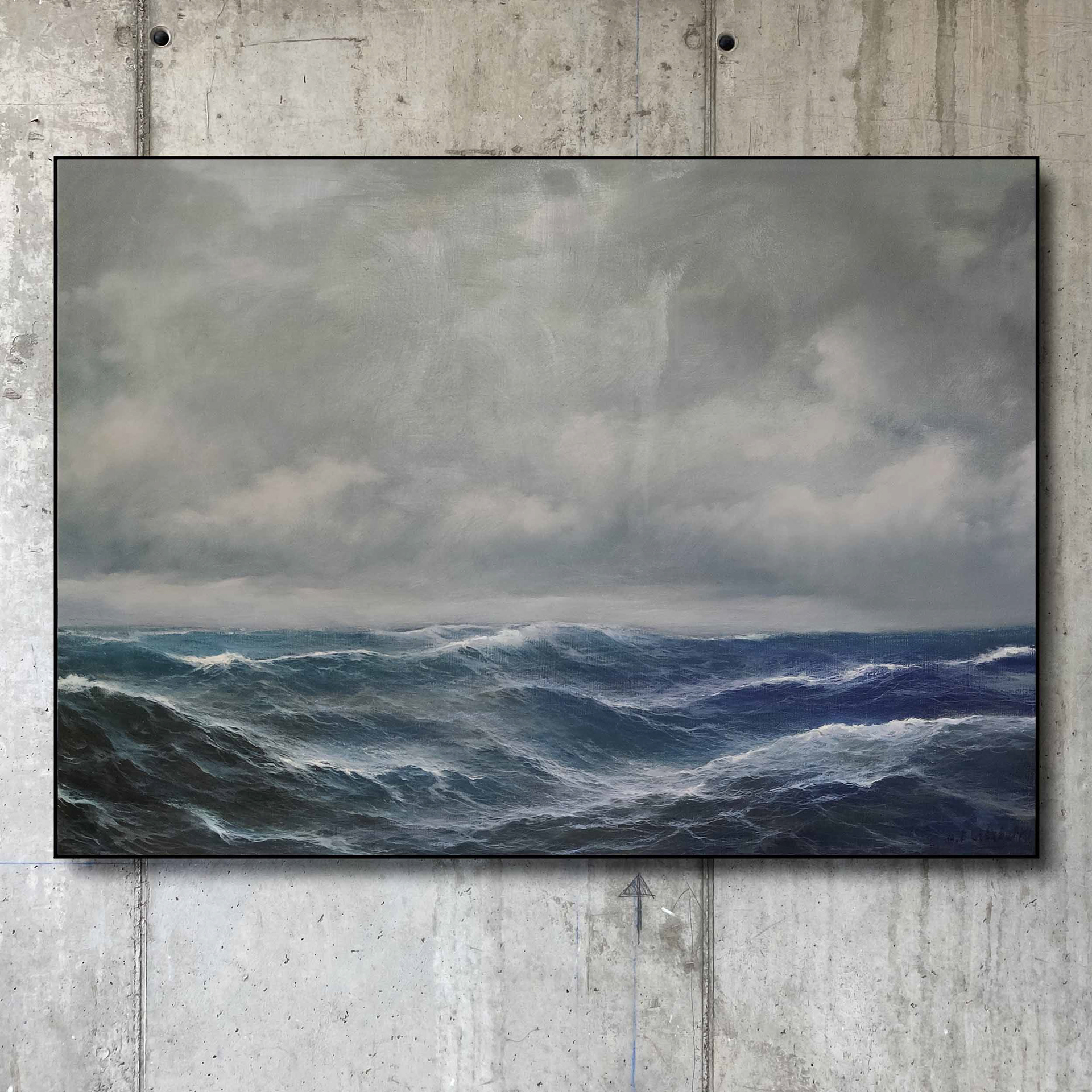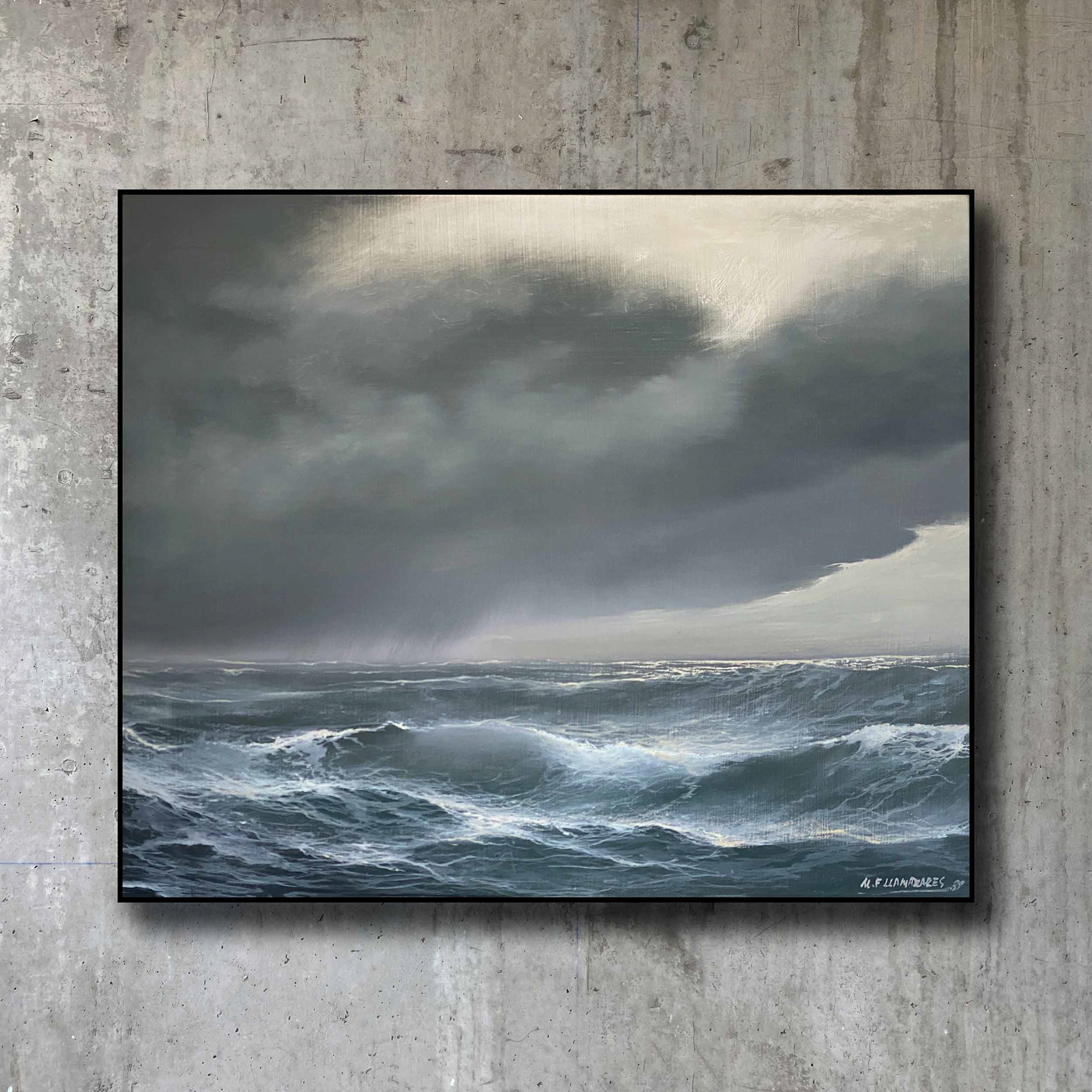Mi padre decía que las marinas eran un estado de ánimo, pintar una marina como una fotografía carecía de sentido; el mar debía ser un retrato de si mismo. Sinceramente pienso que mi padre era un maestro pintándolas y su relación con ellas fue de amor odio. Su relación era de amor por que pintar una marina es una especie de baile rítmico con su propia musicalidad; a veces sosegado, otras intranquilo; una manera muy explícita de enseñarnos cómo se sentía.
Había que darles vida y para eso debía conocer el mar y él lo conocía muy bien pues en su etapa de estudiante en Gijón pasó años observando el océano y pintándolo.
La parte de odio que sentía por ellas se remonta a una anécdota que yo intuyo le afectó mucho; al parecer en una ocasión un galerista le dijo a mi padre que nunca triunfaría como pintor porque un artista de “verdad” no se dedica a pintar de todo: un día abstracción, otro figurativismo, en otro momento híper realismo, paisajes, retratos, escultura y por supuesto marinas.
A groso modo lo estaba llamando artesano y no artista; y como ejemplo decía que un artista de verdad pinta por ejemplo cuadrados rojos durante una temporada, otra temporada cuadrados naranjas y en unos años cuadrados azules y para cuando ha fallecido siempre será el pintor de los cuadrados.
Con mi padre eso nunca sería así y todos éramos conscientes de ello.
Quien tiene una marina pintada por mi padre tiene una ventana al océano. Los mares de los cuadros de mi padre son inquietantes, fríos y solitarios. El agua es casi opaca, algo sólida, siempre fría, hueles la sal; todo es muy hostil. Mi padre imaginaba el mar desparramándose por el estudio ahogándolo. Sus composiciones casi nunca tienen referentes; no ves costa, ni acantilados, ni barco alguno; así, de esa manera el espectador es un náufrago.
En realidad hay pocas cosas más abstractas que el agua en movimiento; el chapoteo, la espuma , el liquido golpeándose y meciéndose continuamente en un eterno caos siempre igual y siempre distinto. El fluido es la abstracción perfecta; fuera de contexto no tiene perspectiva, forma y a veces ni volumen, el color es el mismo pero el tono es infinito. Mi padre se sentía cómodo pintando marinas por que en realidad eran coherentes con su universo creativo de abstracción.
My father said that navies were a state of mind, painting a navy as a photograph was meaningless; the sea was to be a portrait of itself. I honestly think that my father was a master at painting them and his relationship with them was one of love-hate.
Their relationship was one of love because painting a marina is a kind of rhythmic dance with its own musicality; sometimes calm, sometimes restless; a very explicit way to teach us how he felt. You had to give them life and for that I had to know the sea and he knew it very well because in his student stage in Gijón he spent years observing the ocean and painting it.
The part of hatred I felt for them goes back to an anecdote that I sense affected him a lot; apparently on one occasion a gallerist told my father that he would never succeed as a painter because a "real" artist is not dedicated to painting everything: one day abstraction, another figurativism, in another moment hyperrealism, landscapes, portraits, sculpture and of course seascapes.
Roughly I was calling him a craftsman and not an artist; and as an example I said that a real artist paints for example red squares during a season, another season orange squares and in a few years blue squares and by the time he has died he will always be the painter of the squares. With my father that would never be like this and we were all aware of it.
Whoever has a navy painted by my father has a window to the ocean. The seas of my father's paintings are haunting, cold and lonely. The water is almost opaque, somewhat solid, always cold, you smell the salt; everything is very hostile. My father imagined the sea spilling over the studio drowning him. His compositions almost never have references; you don't see coastline, or cliffs, or any boat; thus, in that way the spectator is a castaway.
There are actually few things more abstract than moving water; the splash, the foam, the liquid hitting and rocking continuously in an eternal chaos always the same and always different. Fluid is the perfect abstraction; out of context has no perspective, shape and sometimes no volume, the color is the same but the tone is infinite. My father was comfortable painting marinas because they were actually consistent with his creative universe of abstraction.
